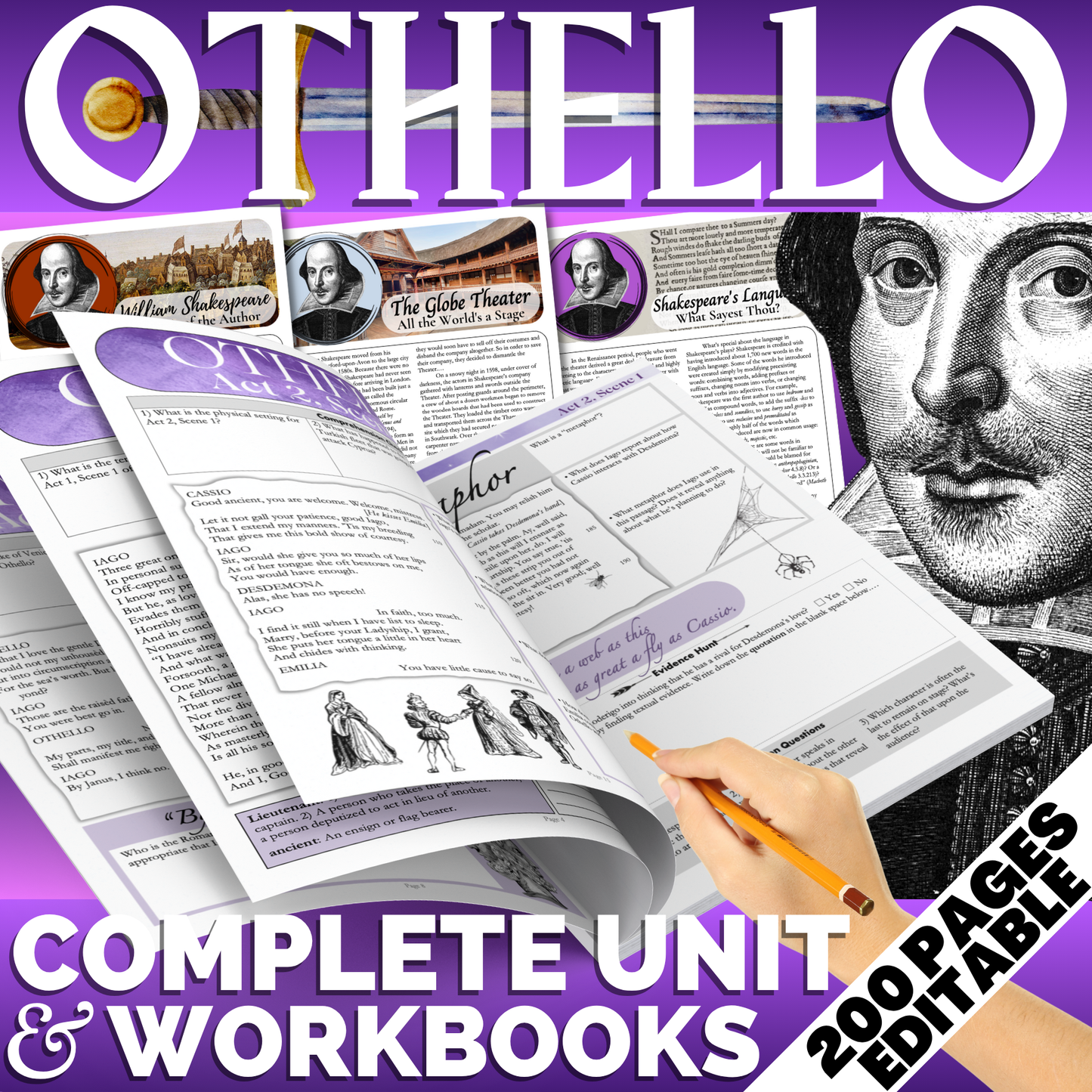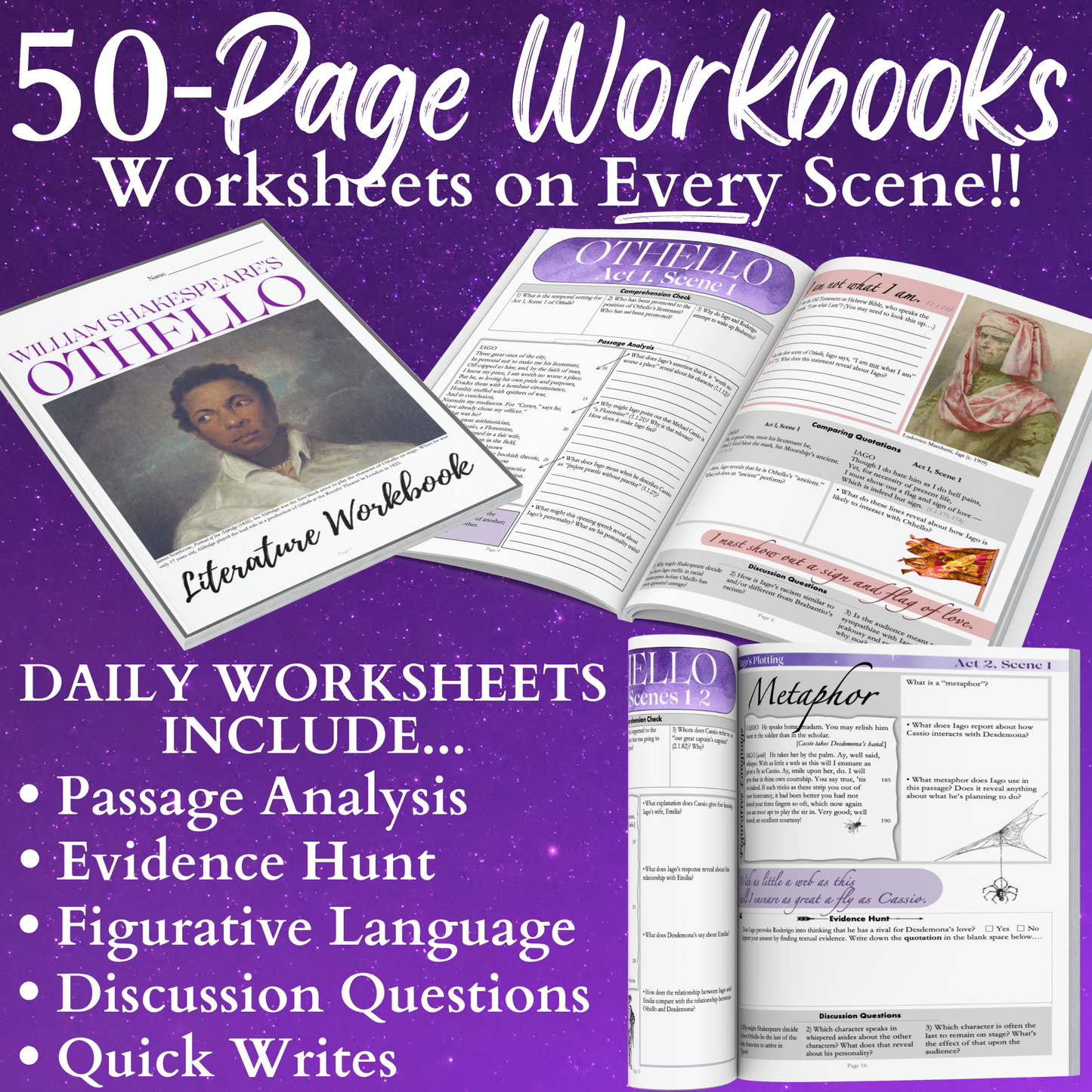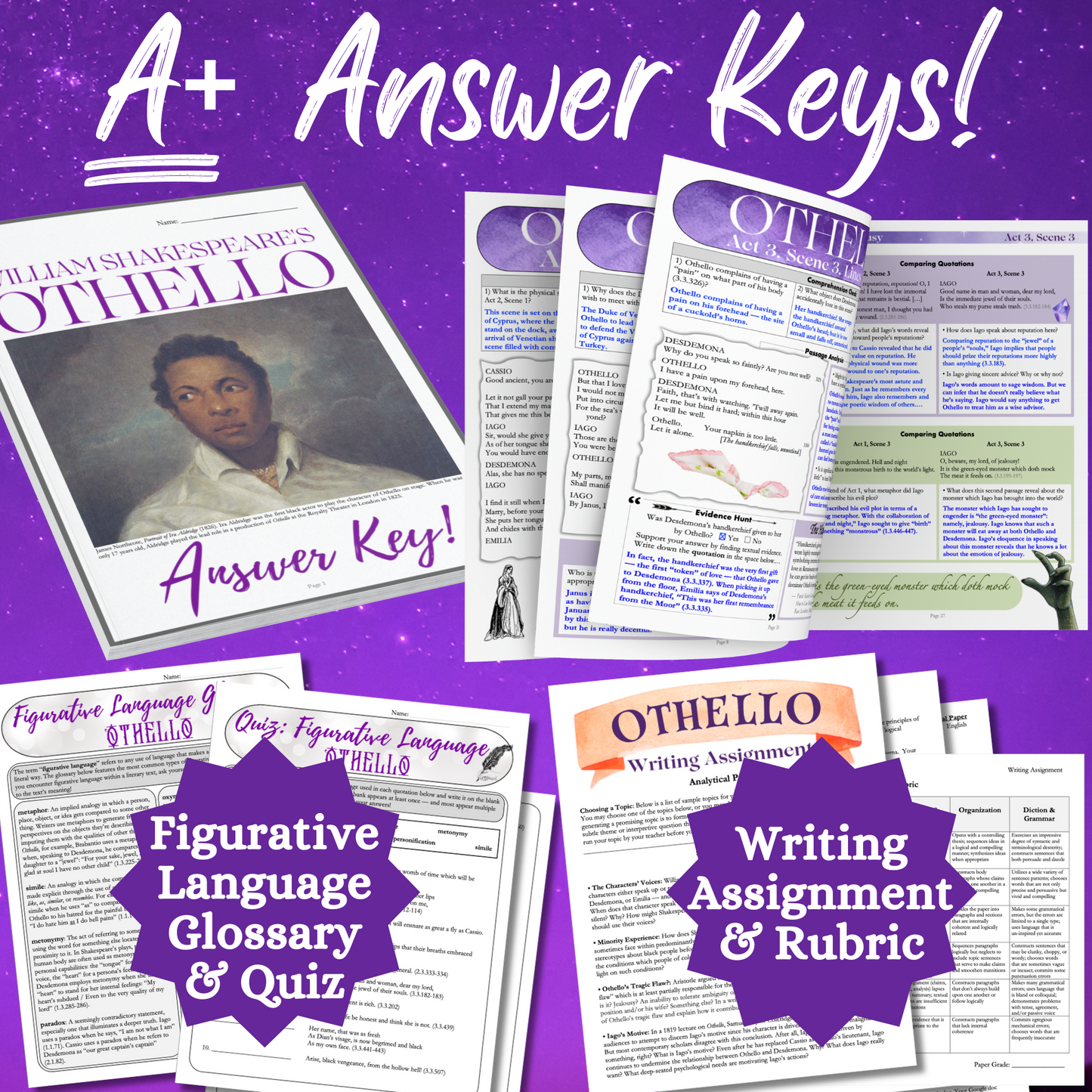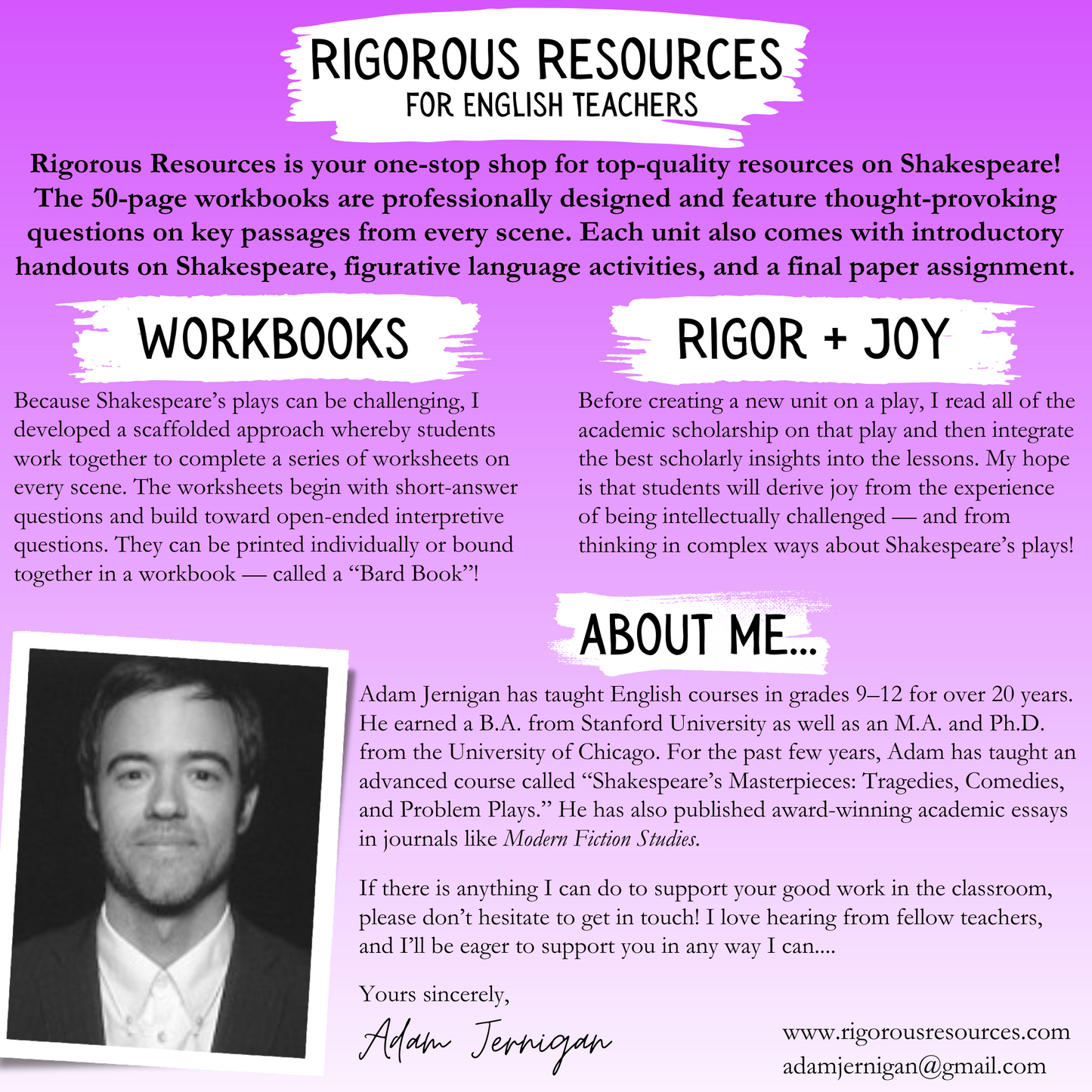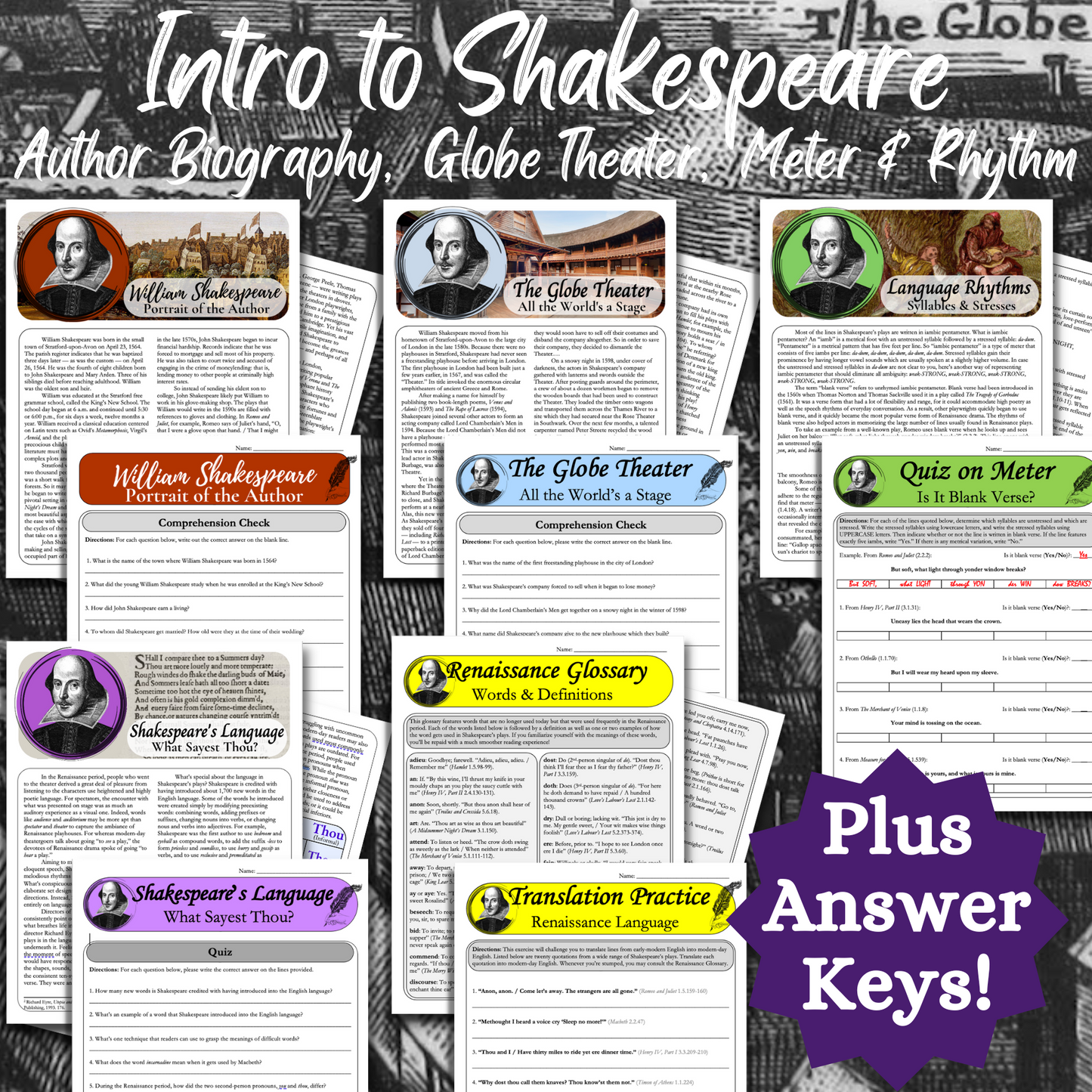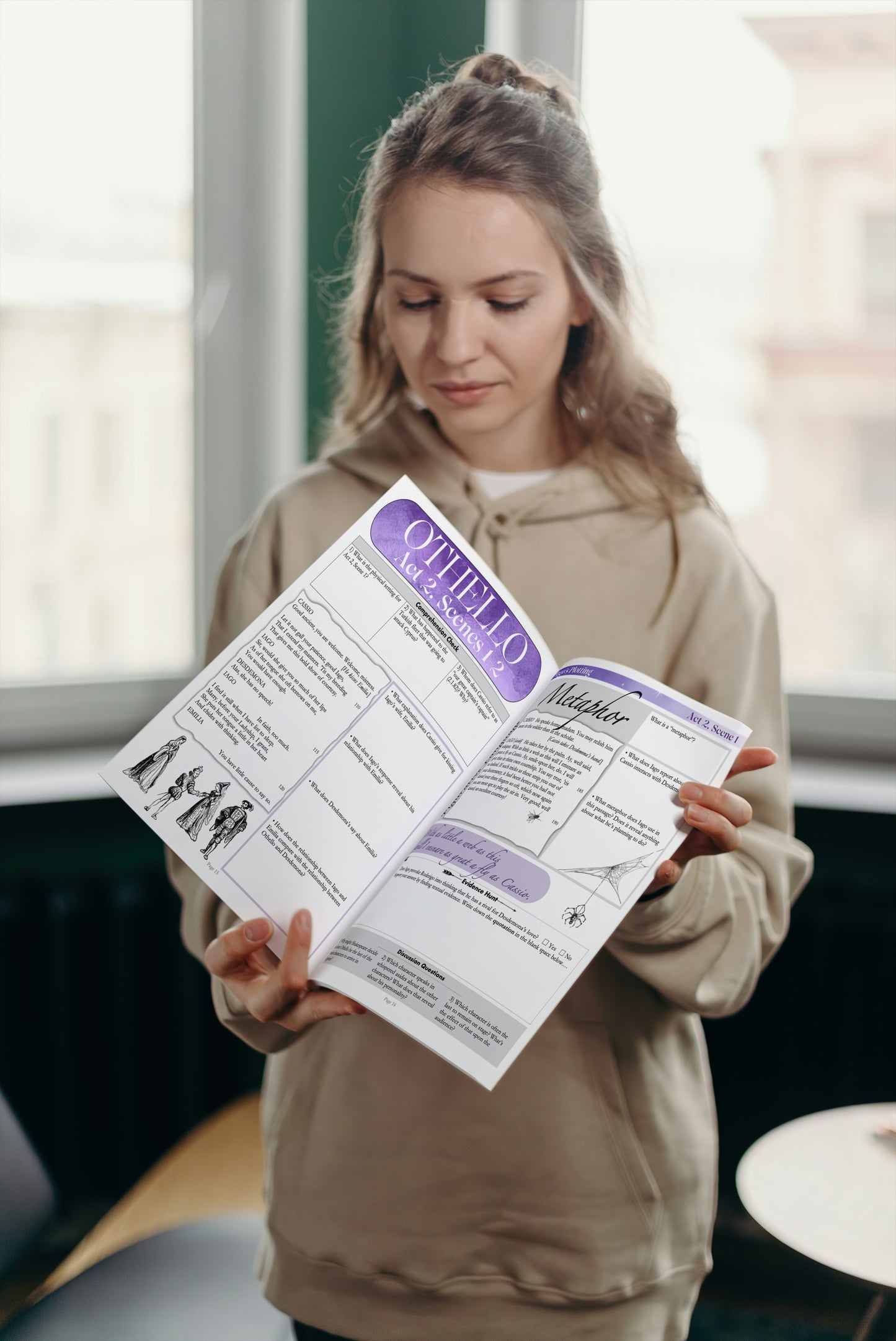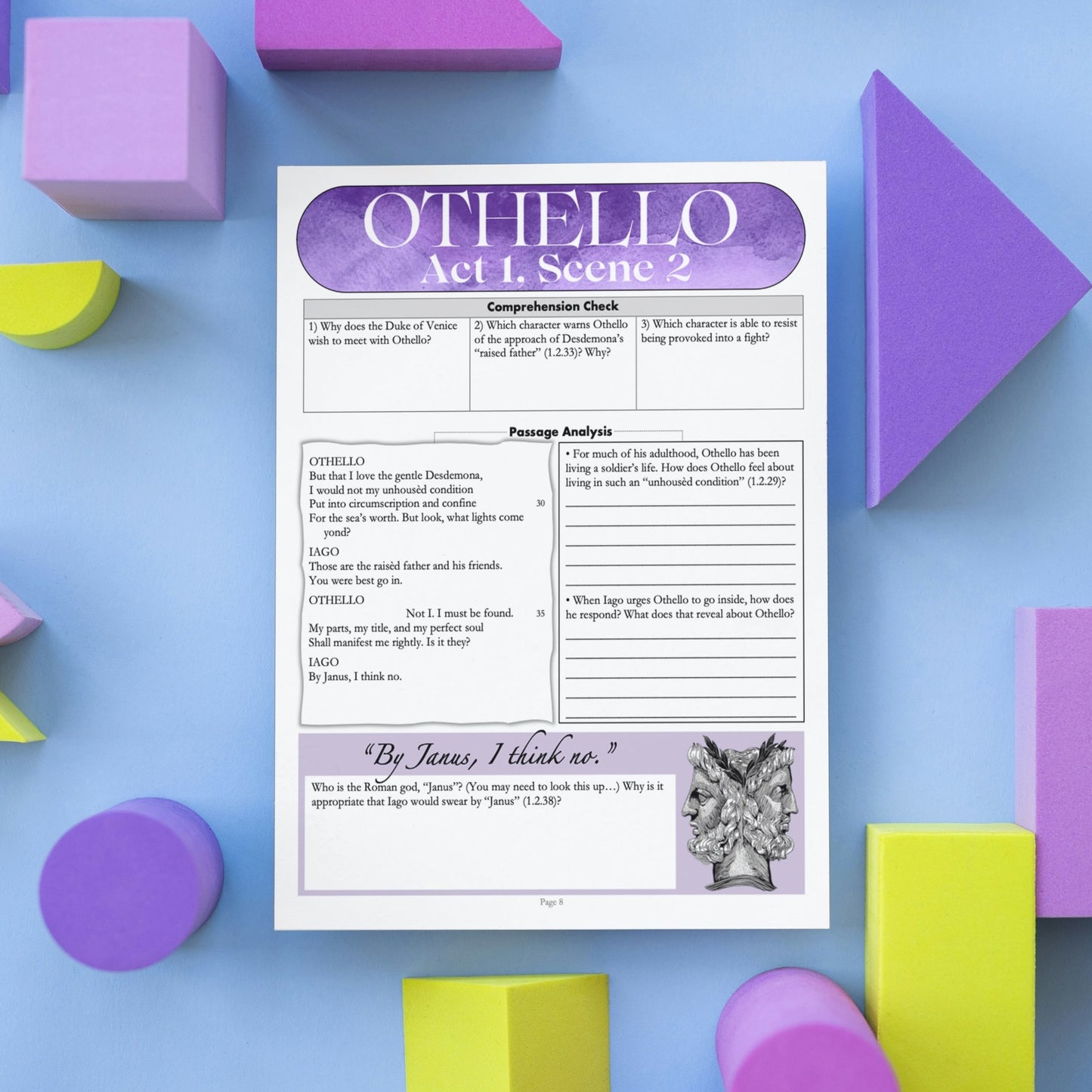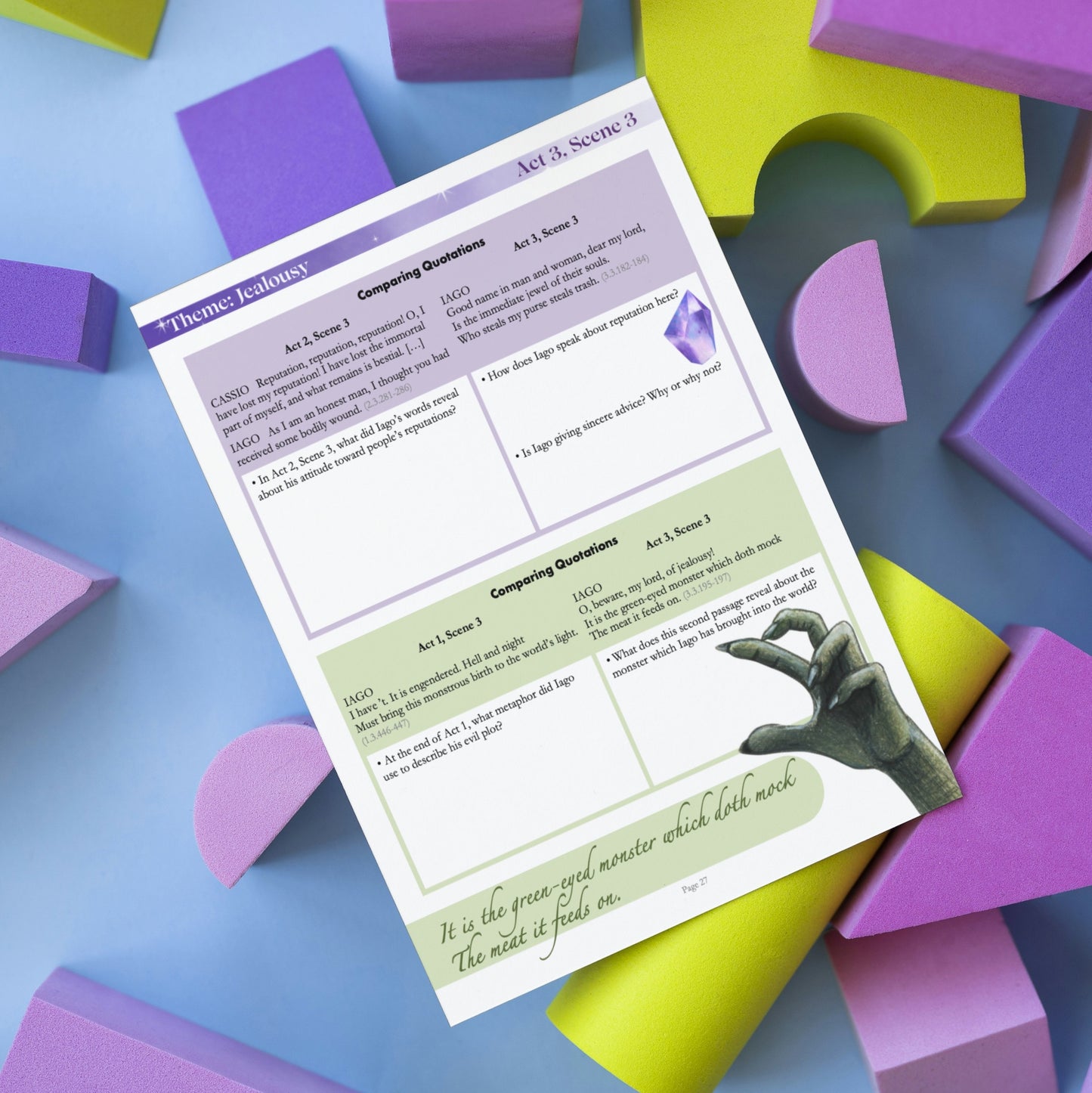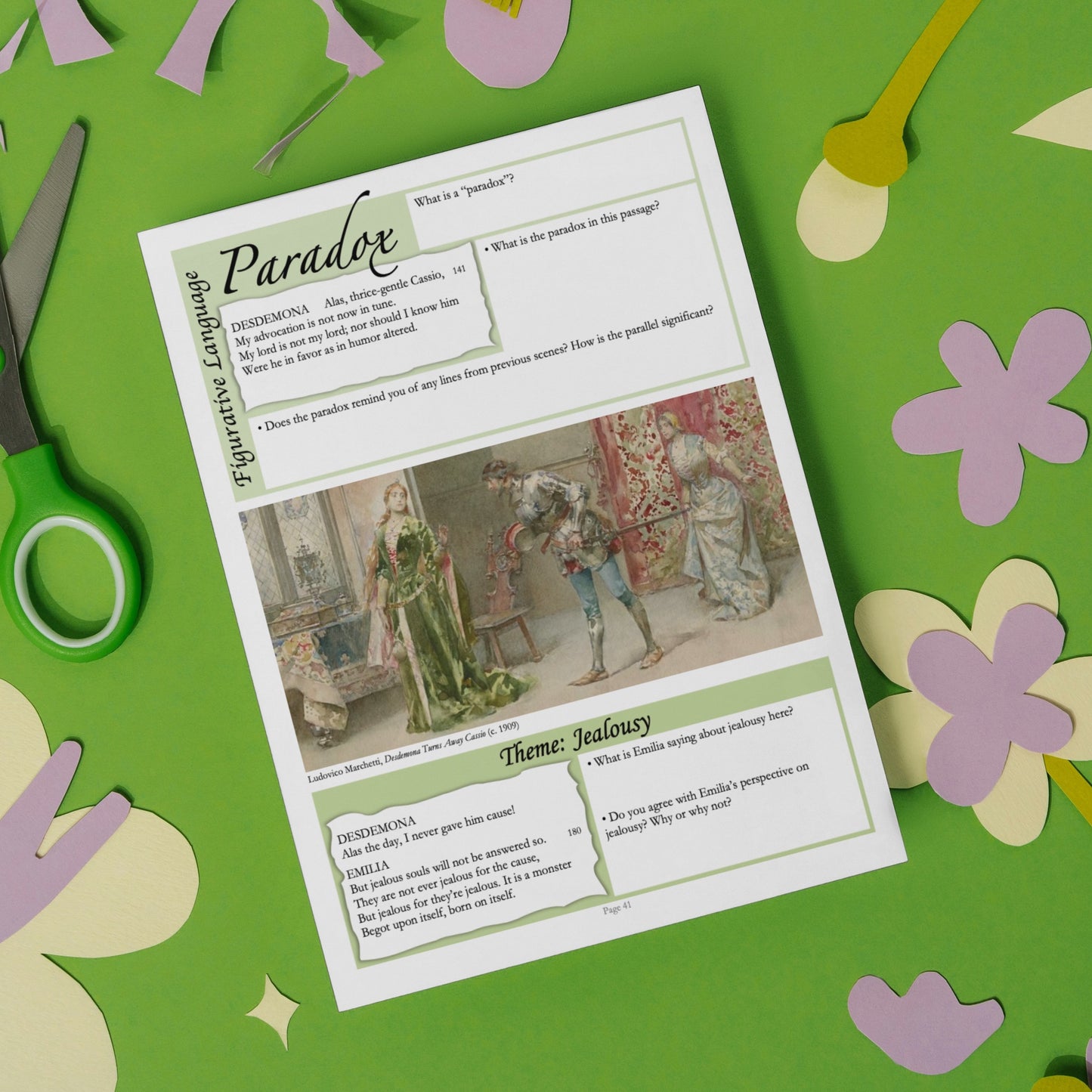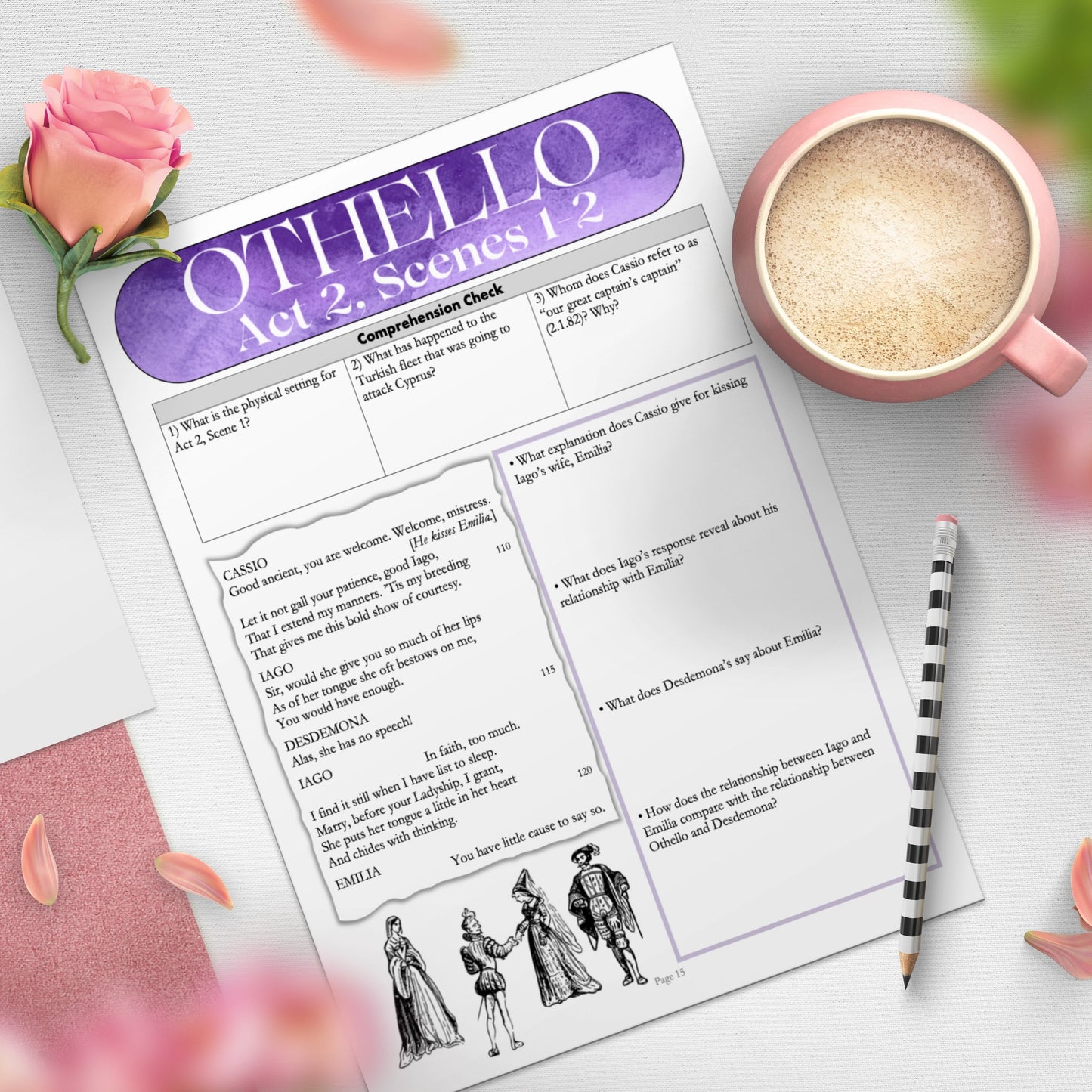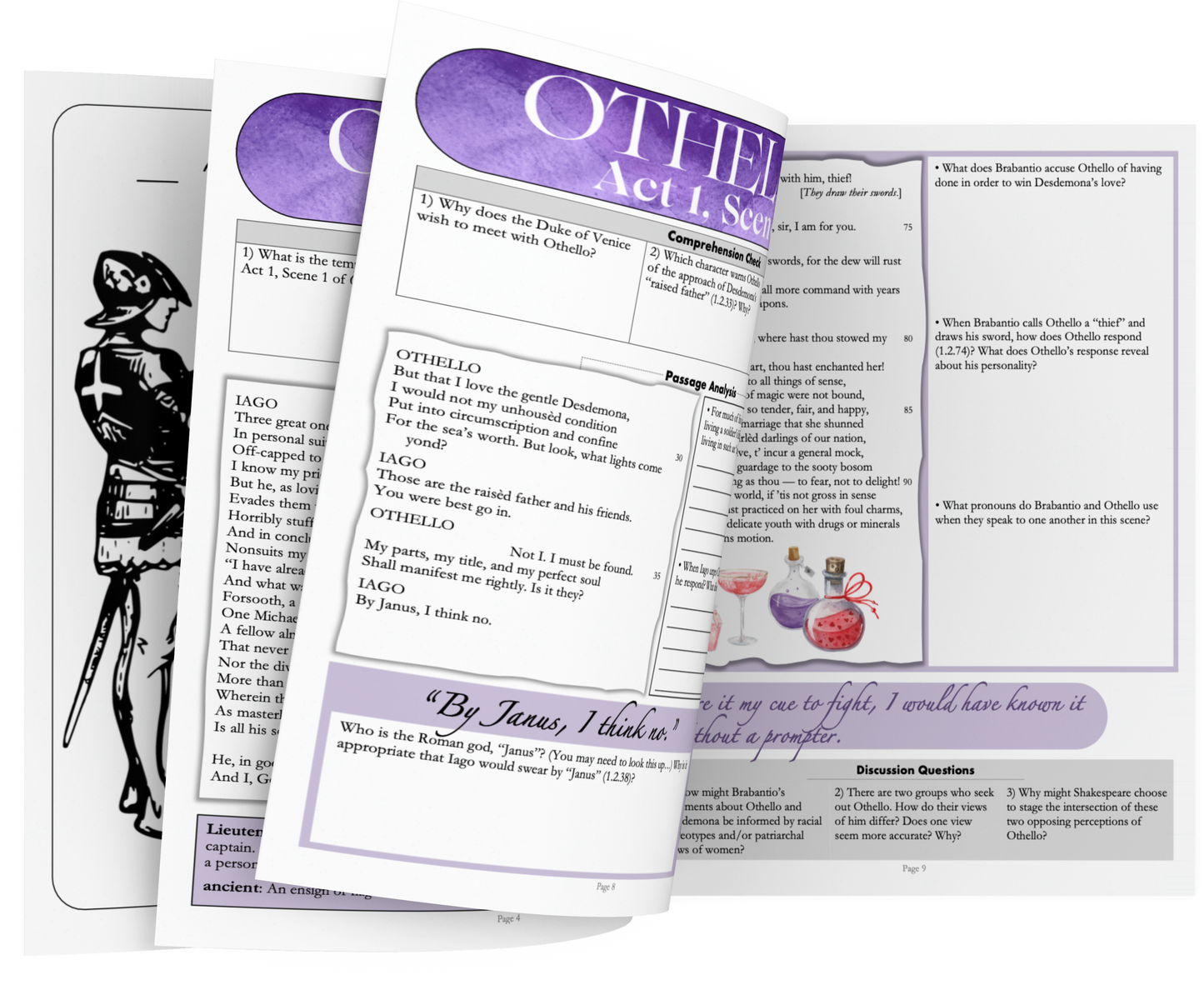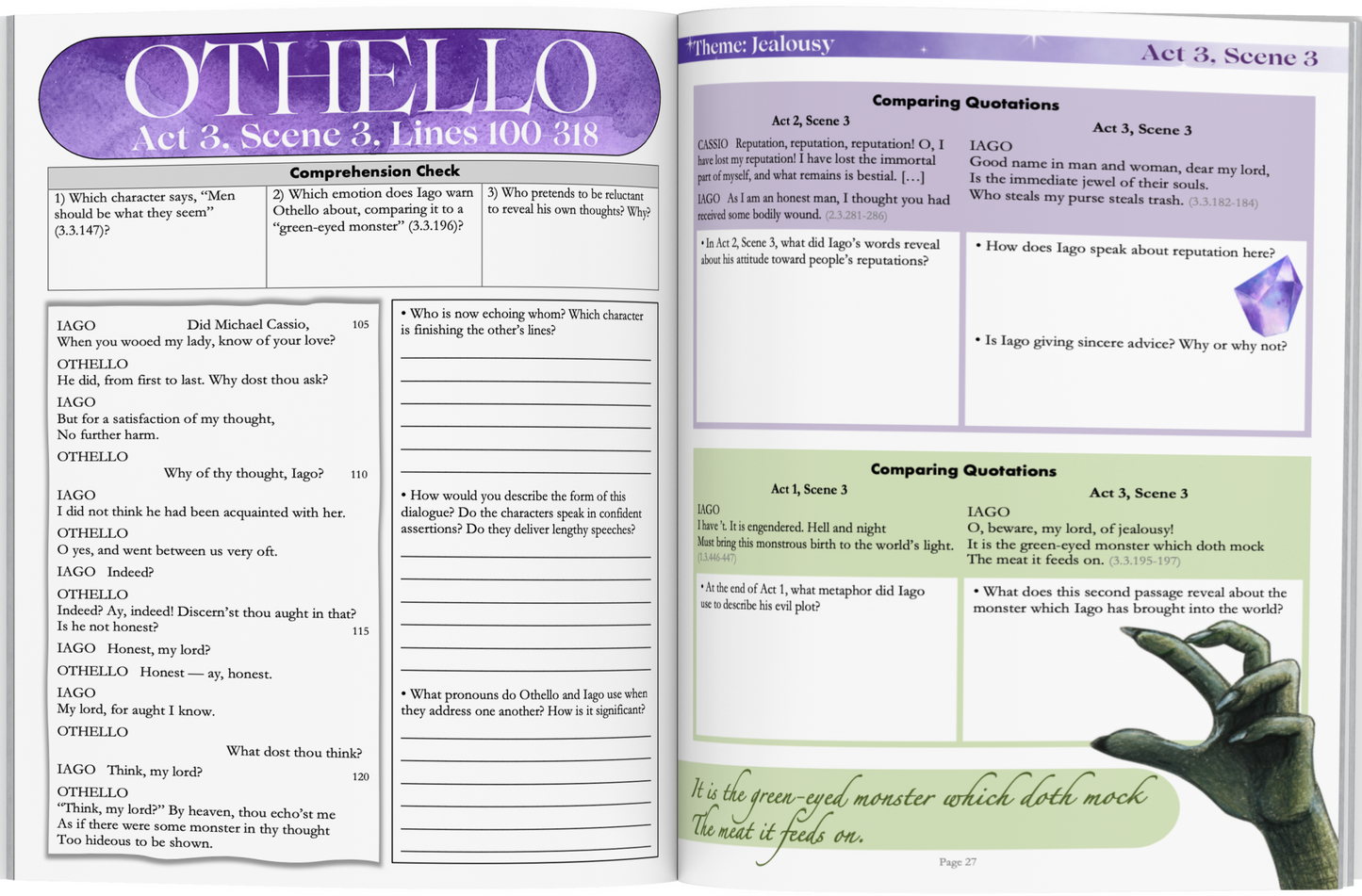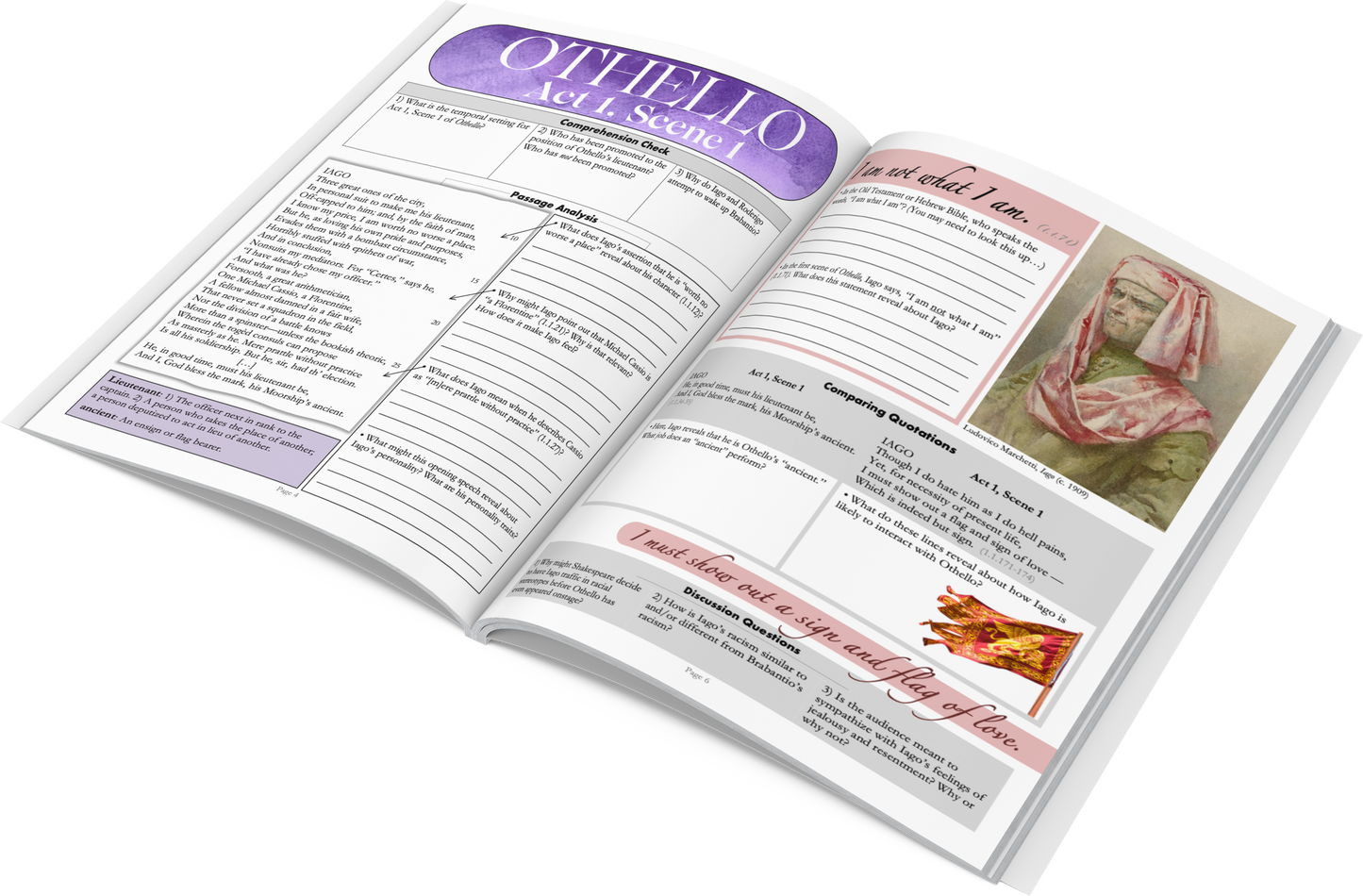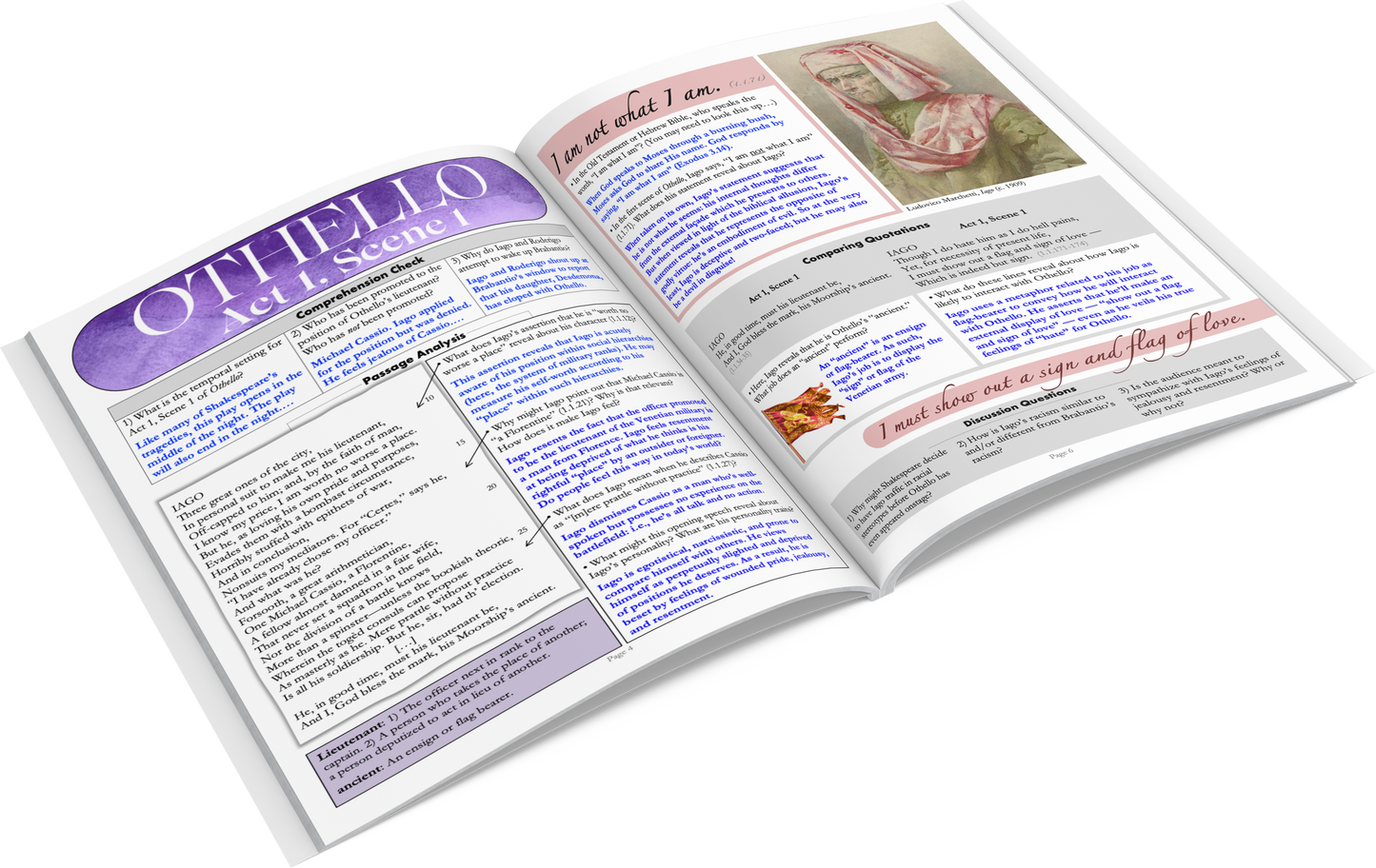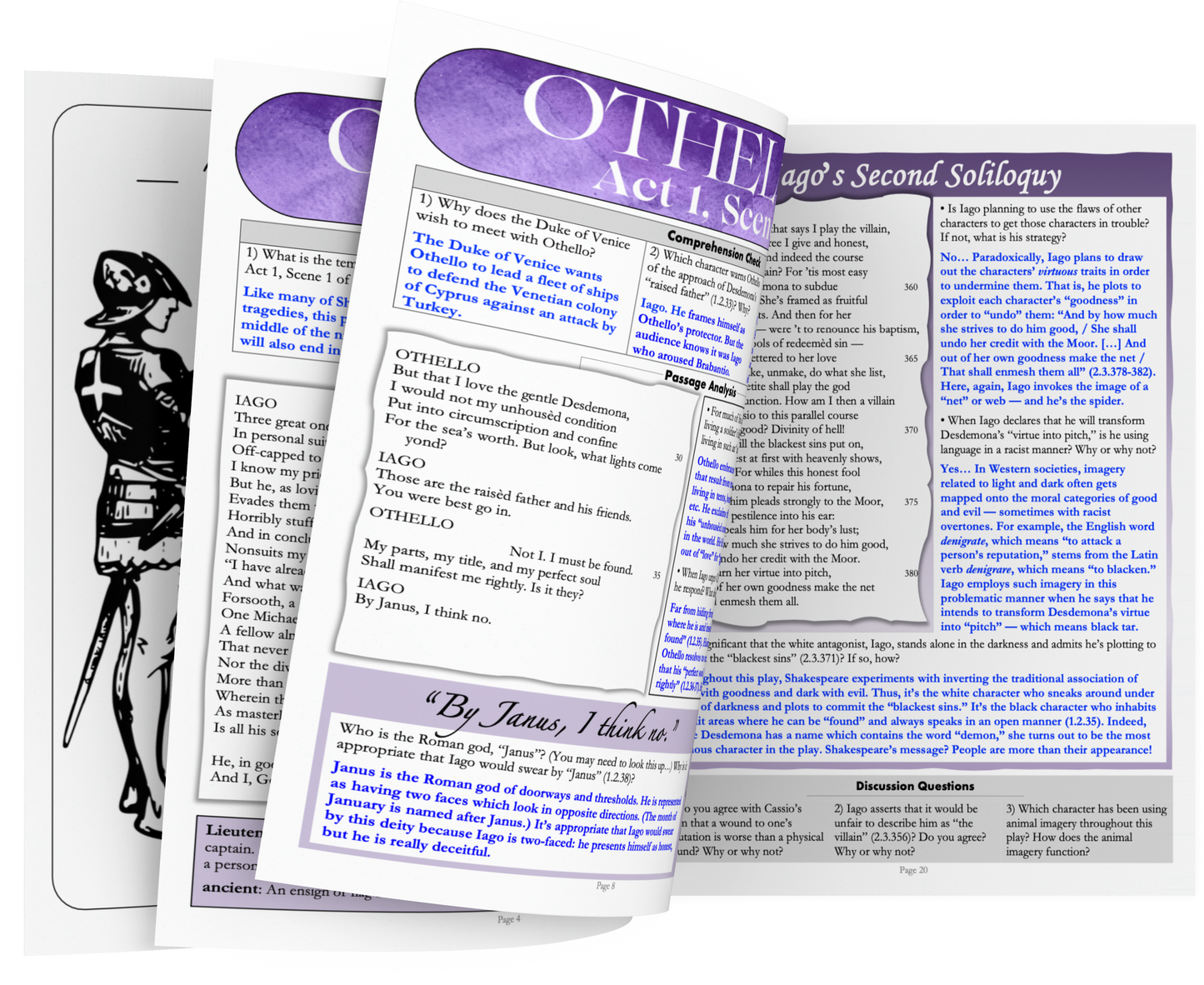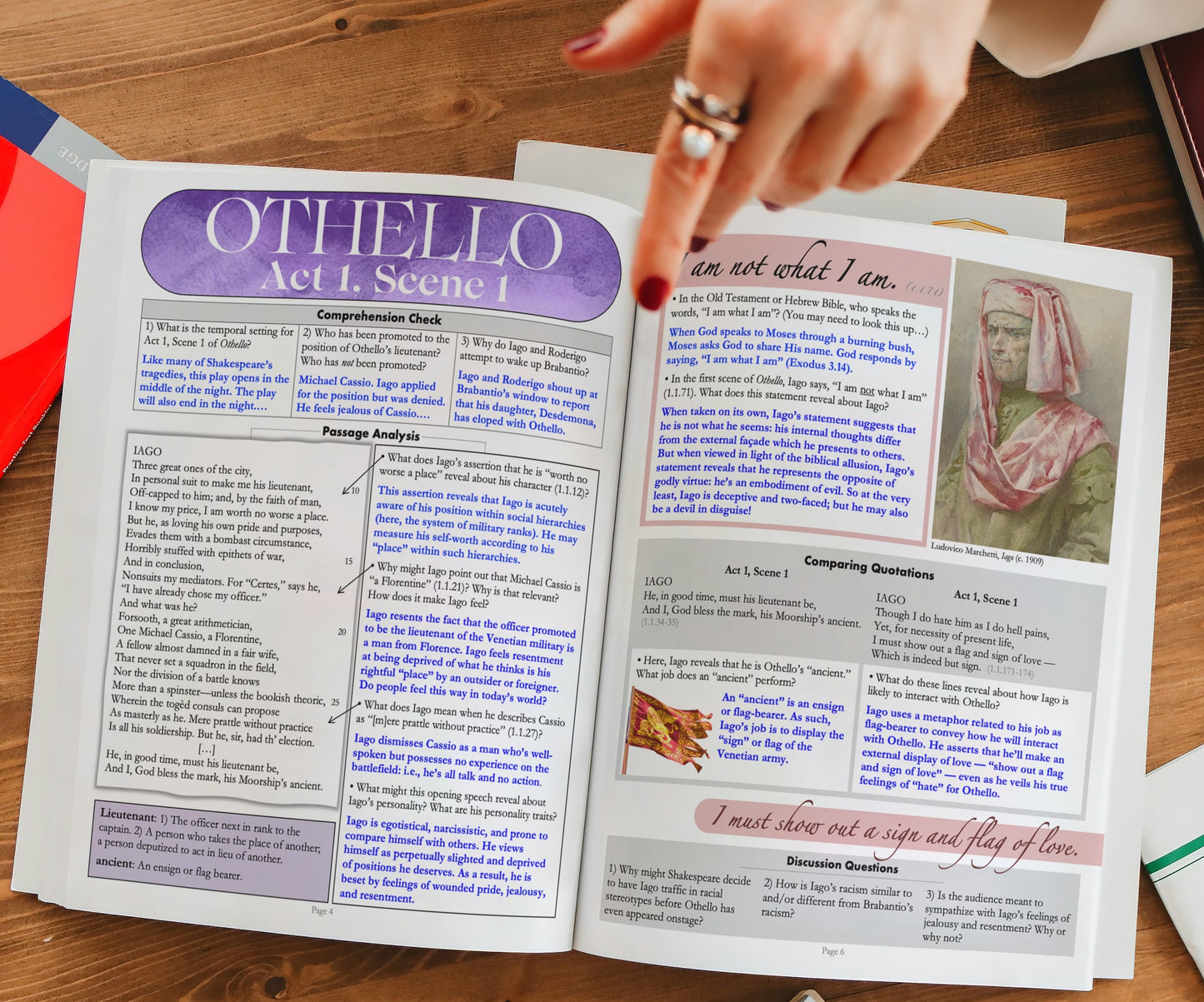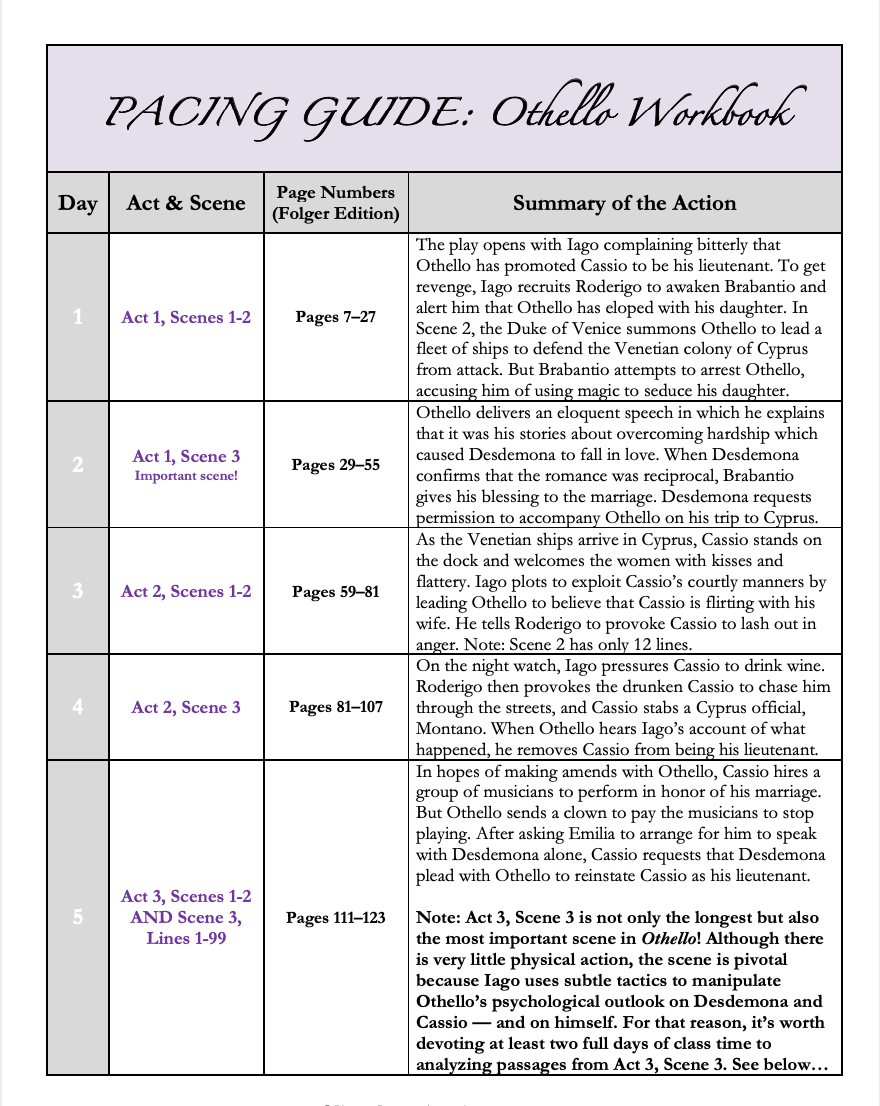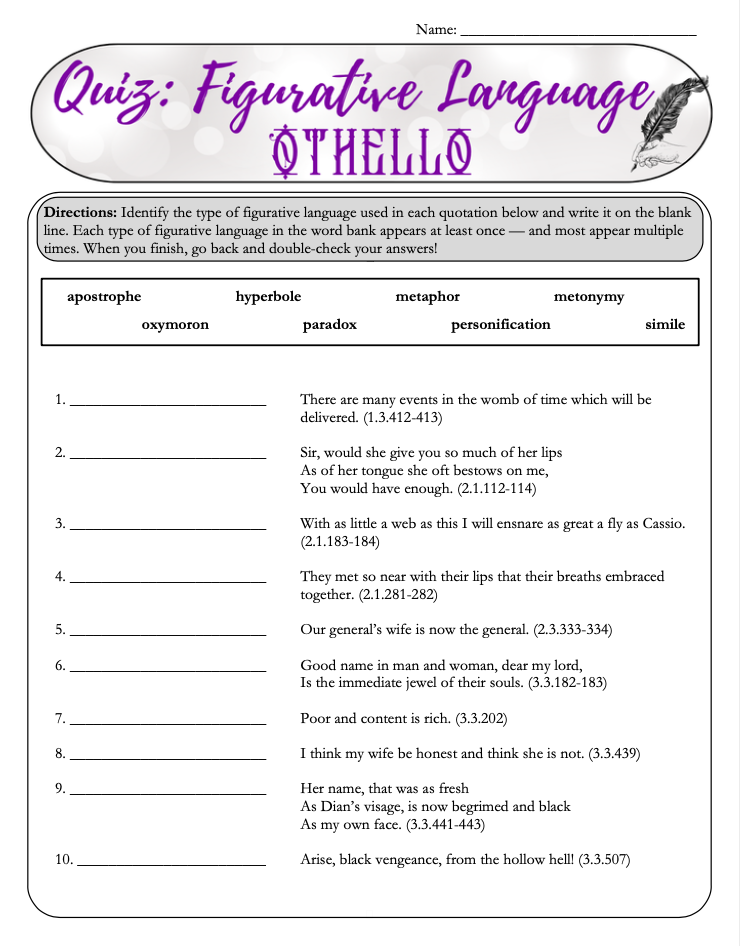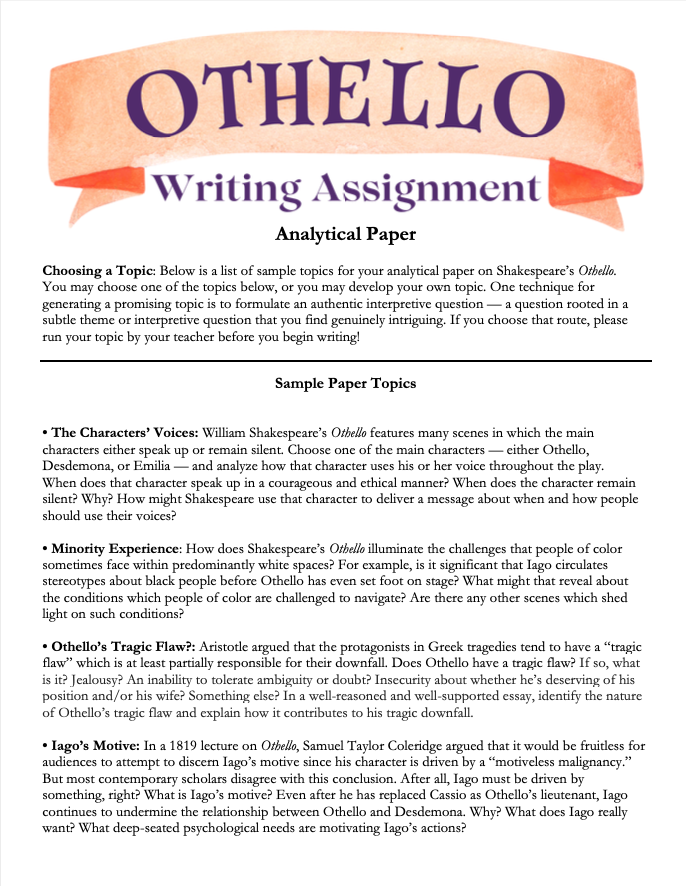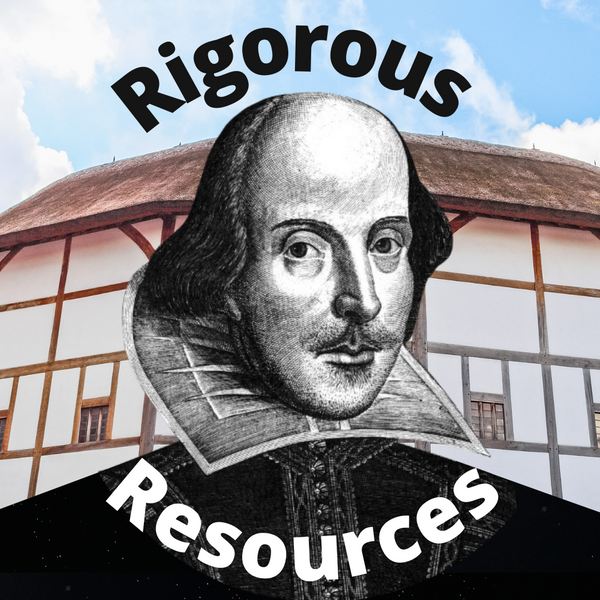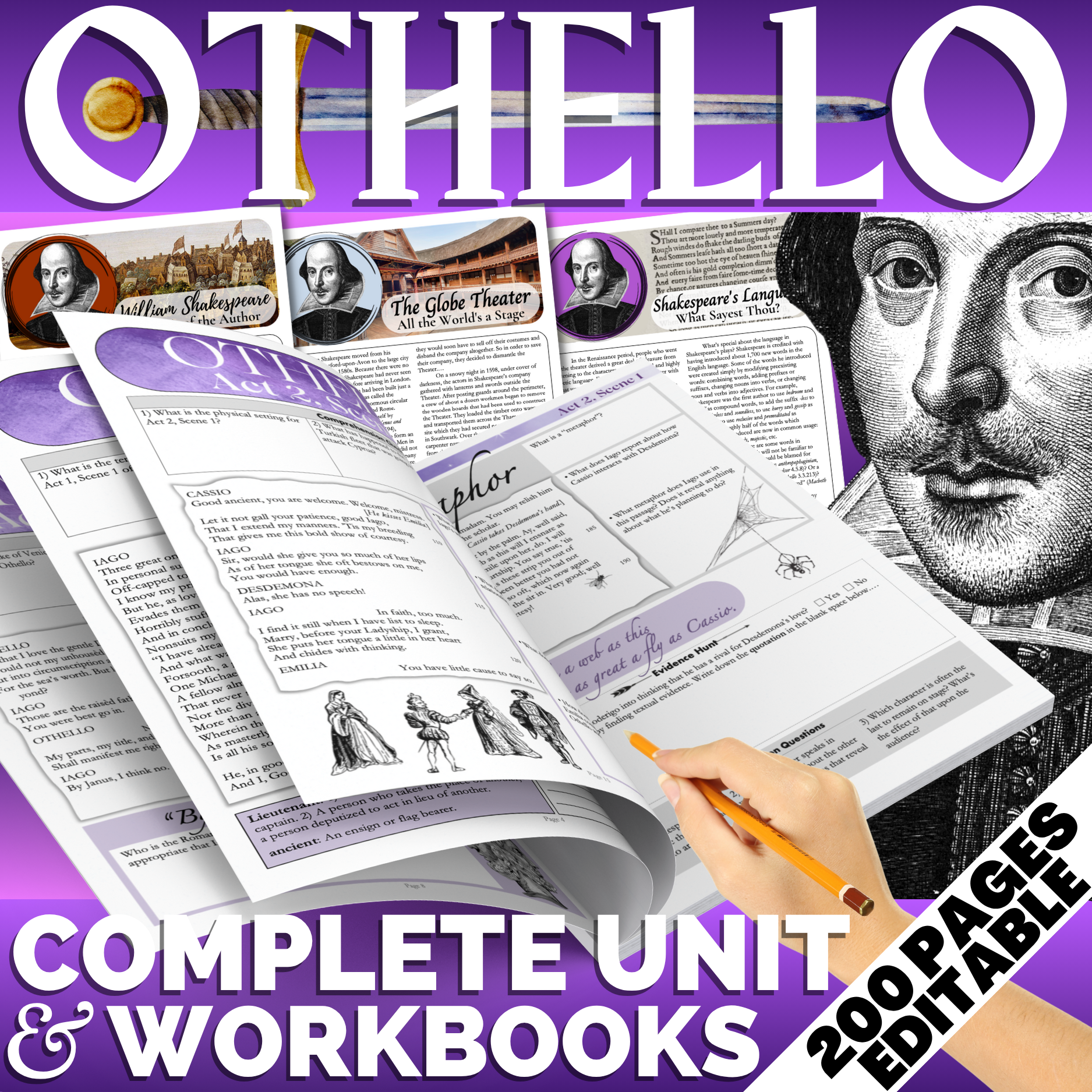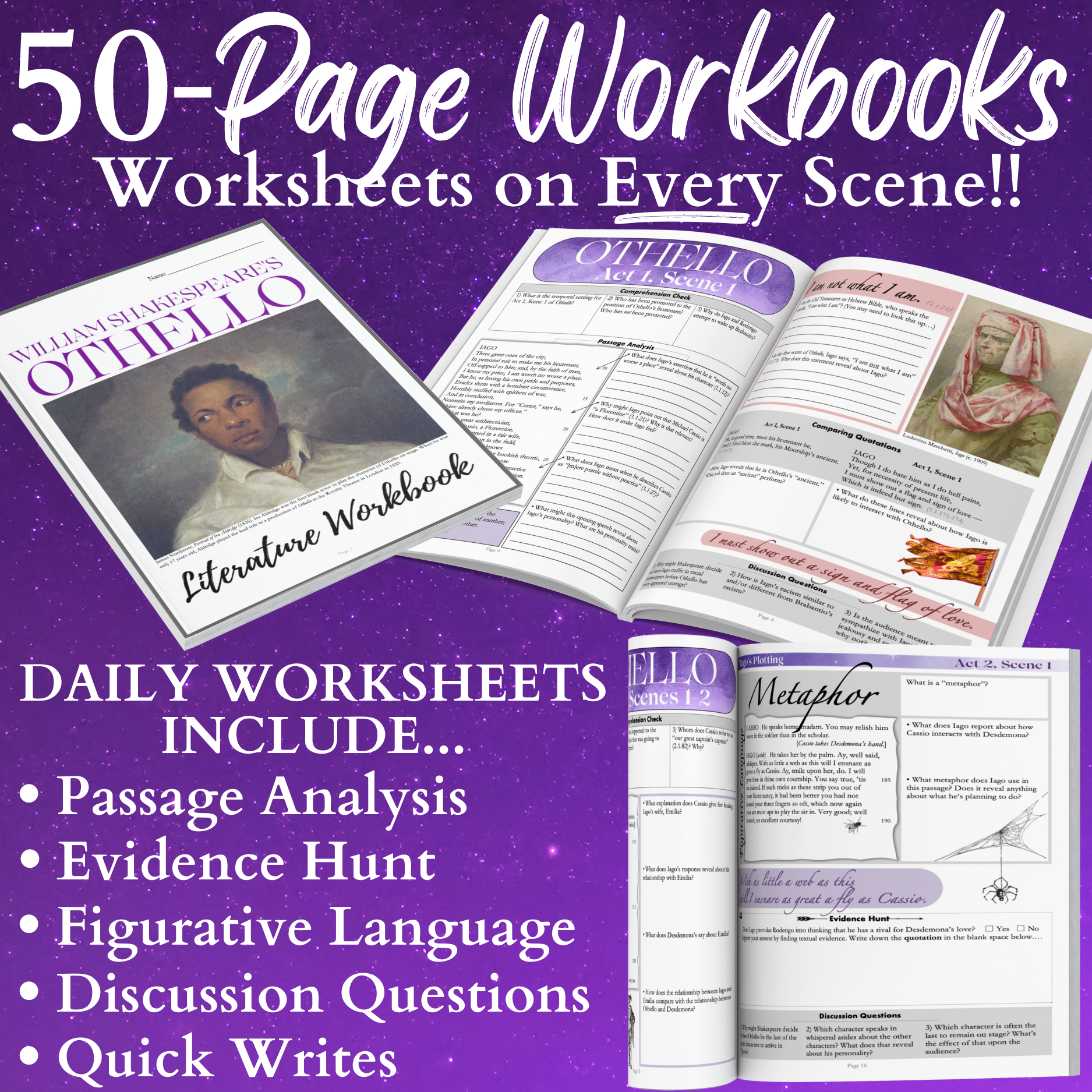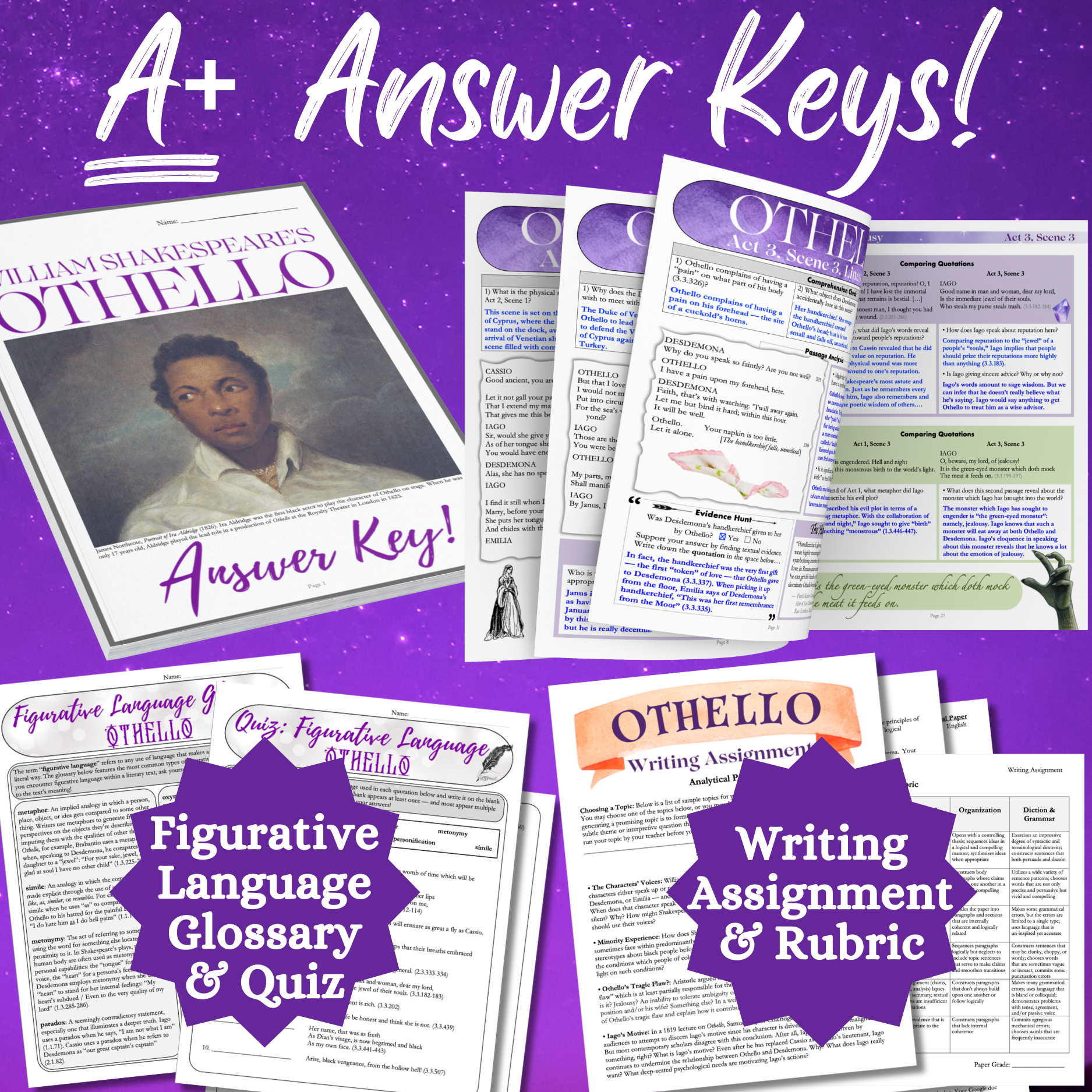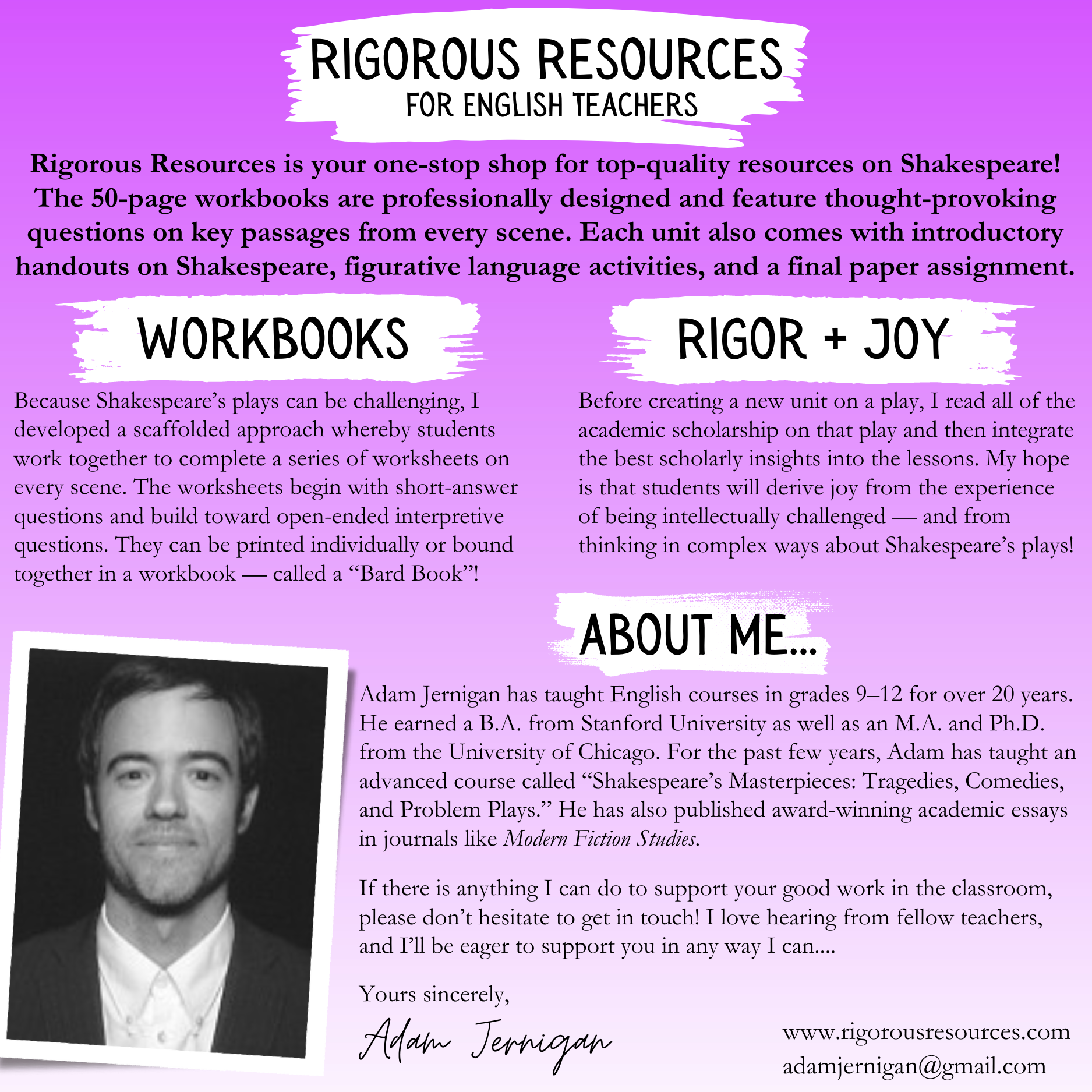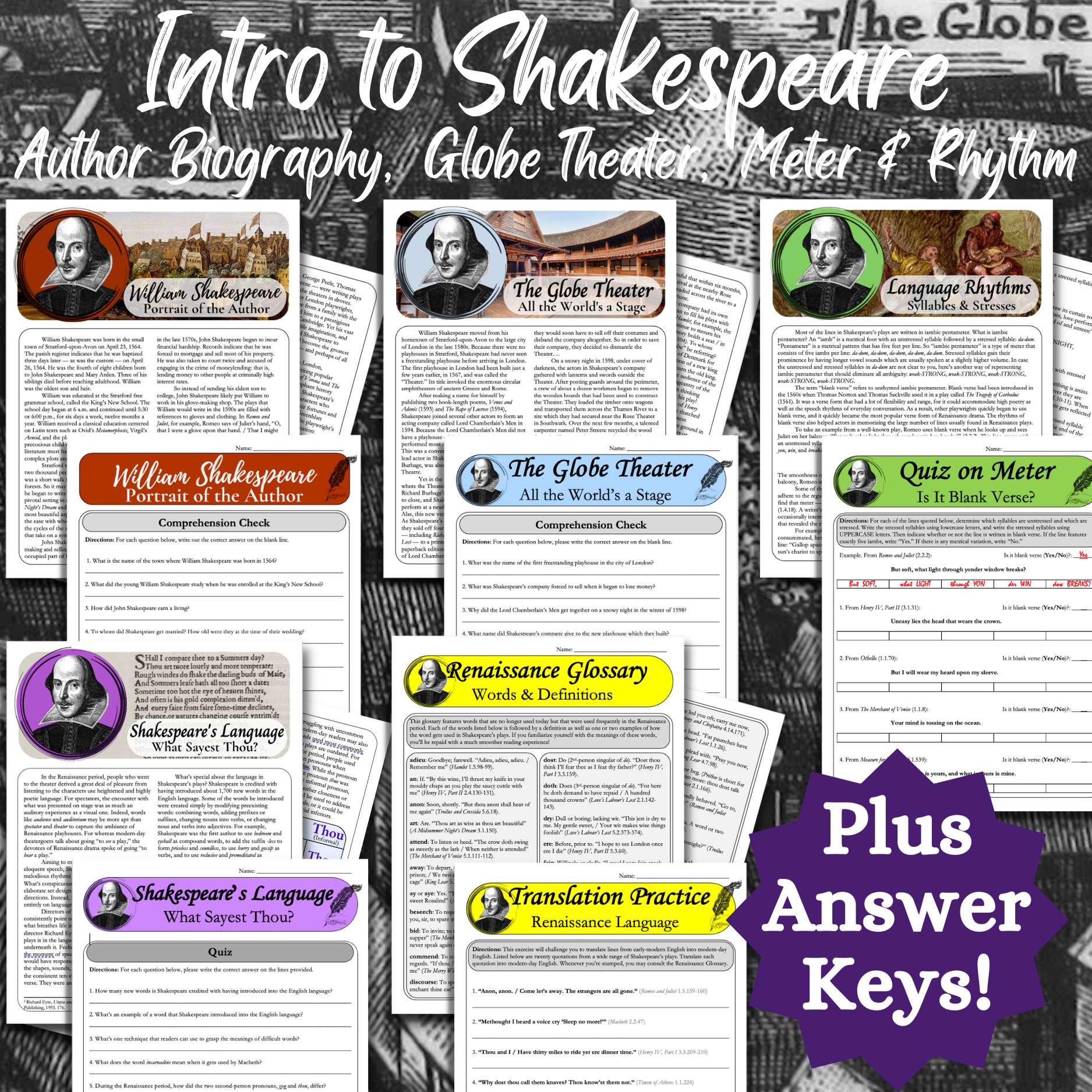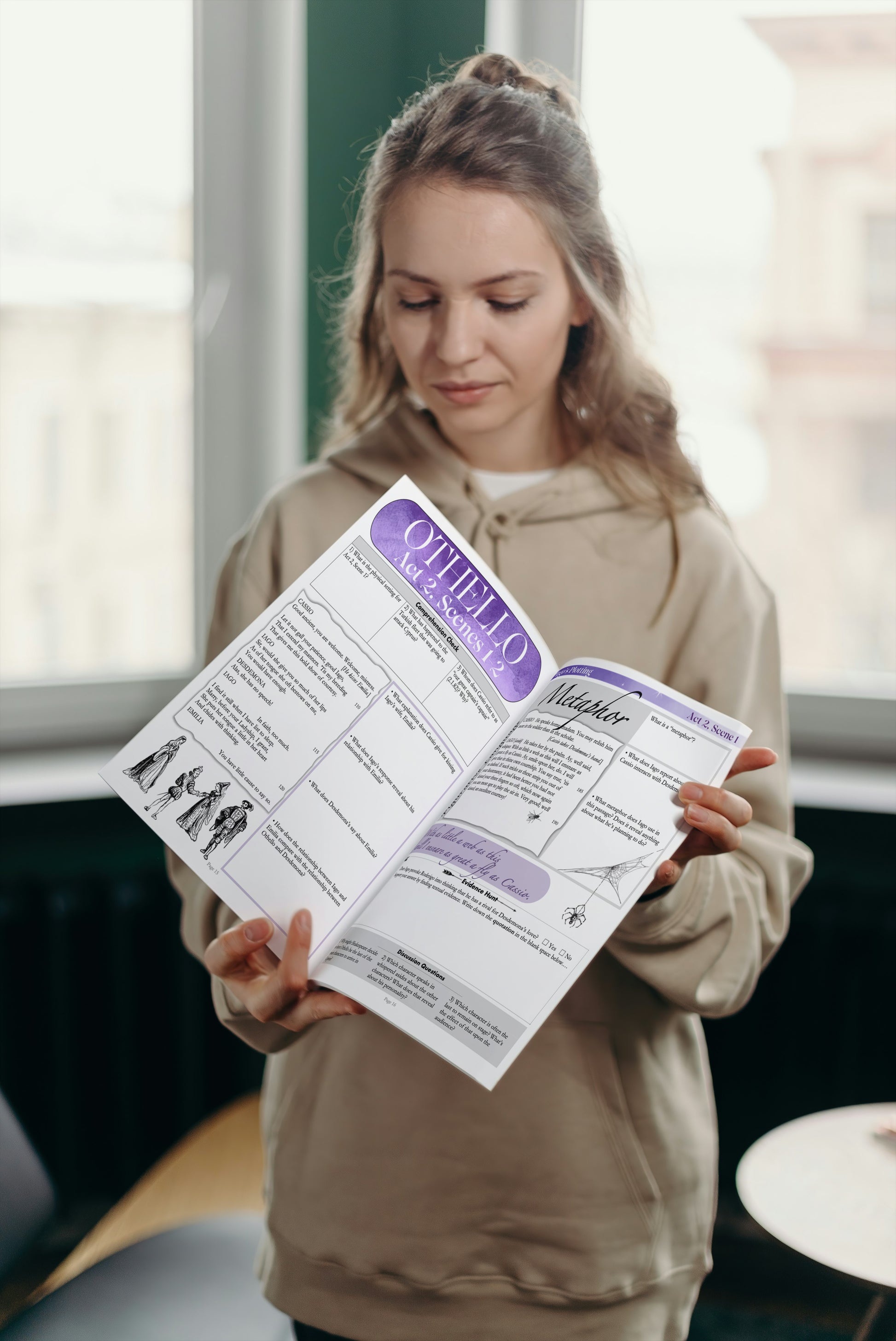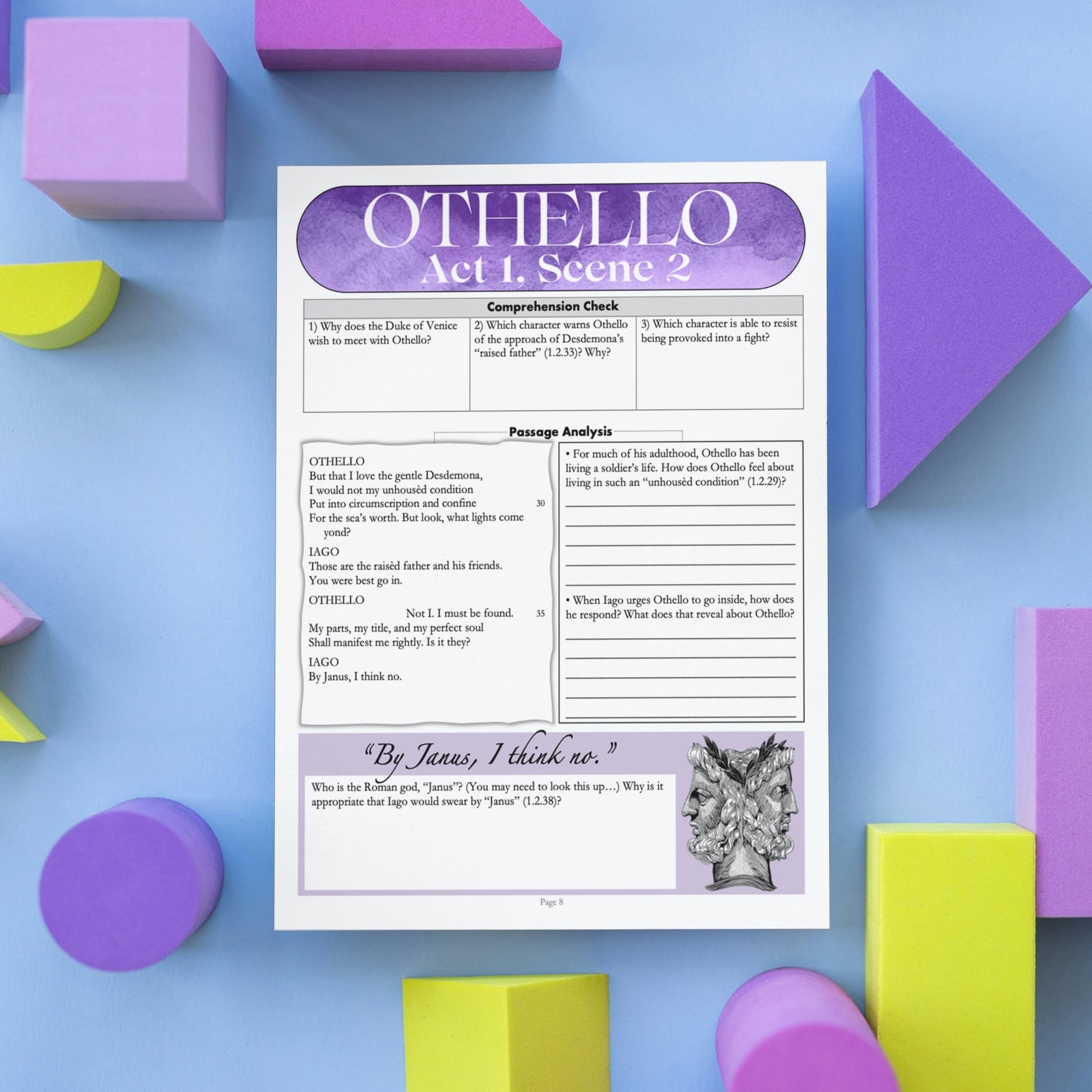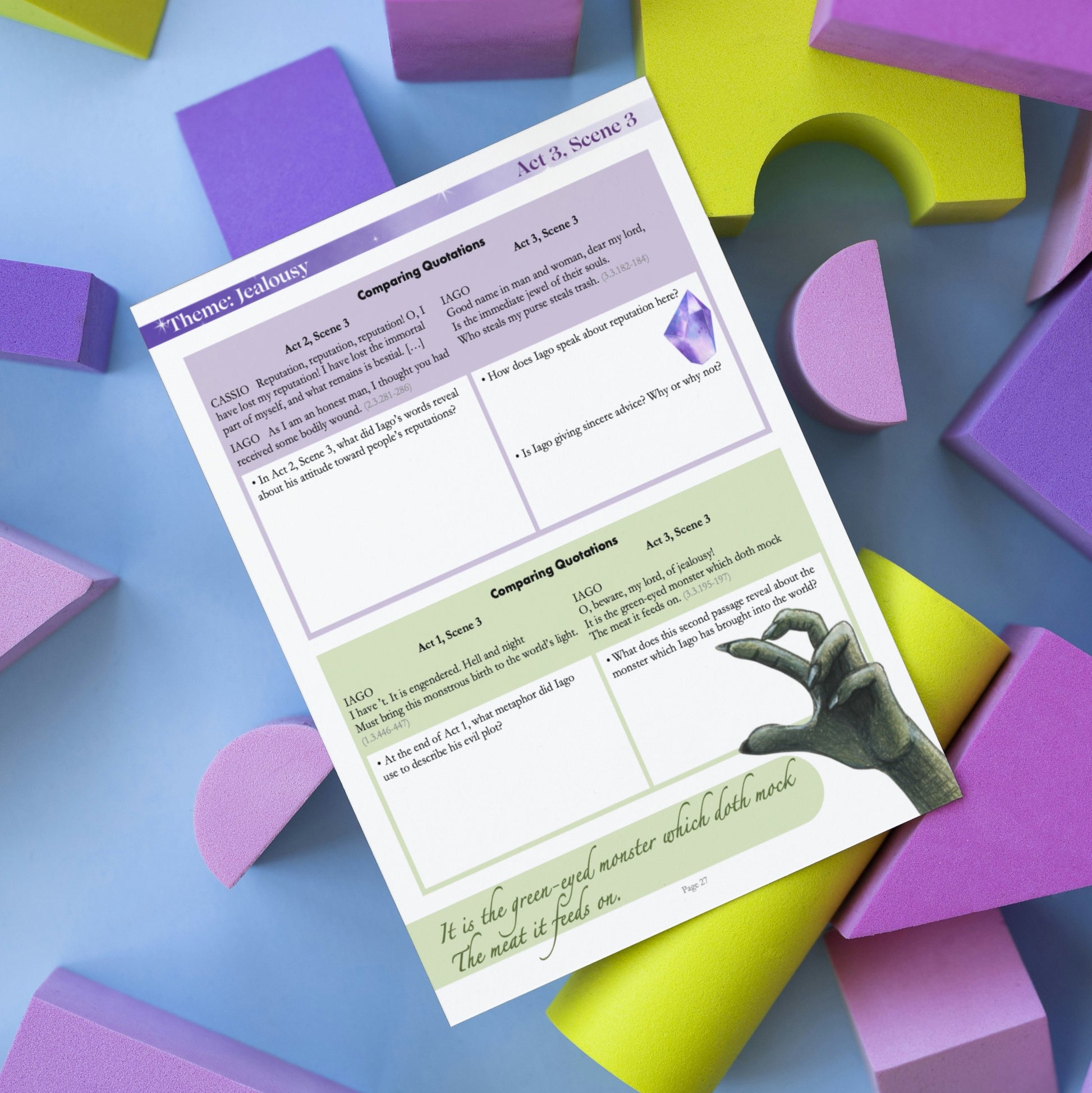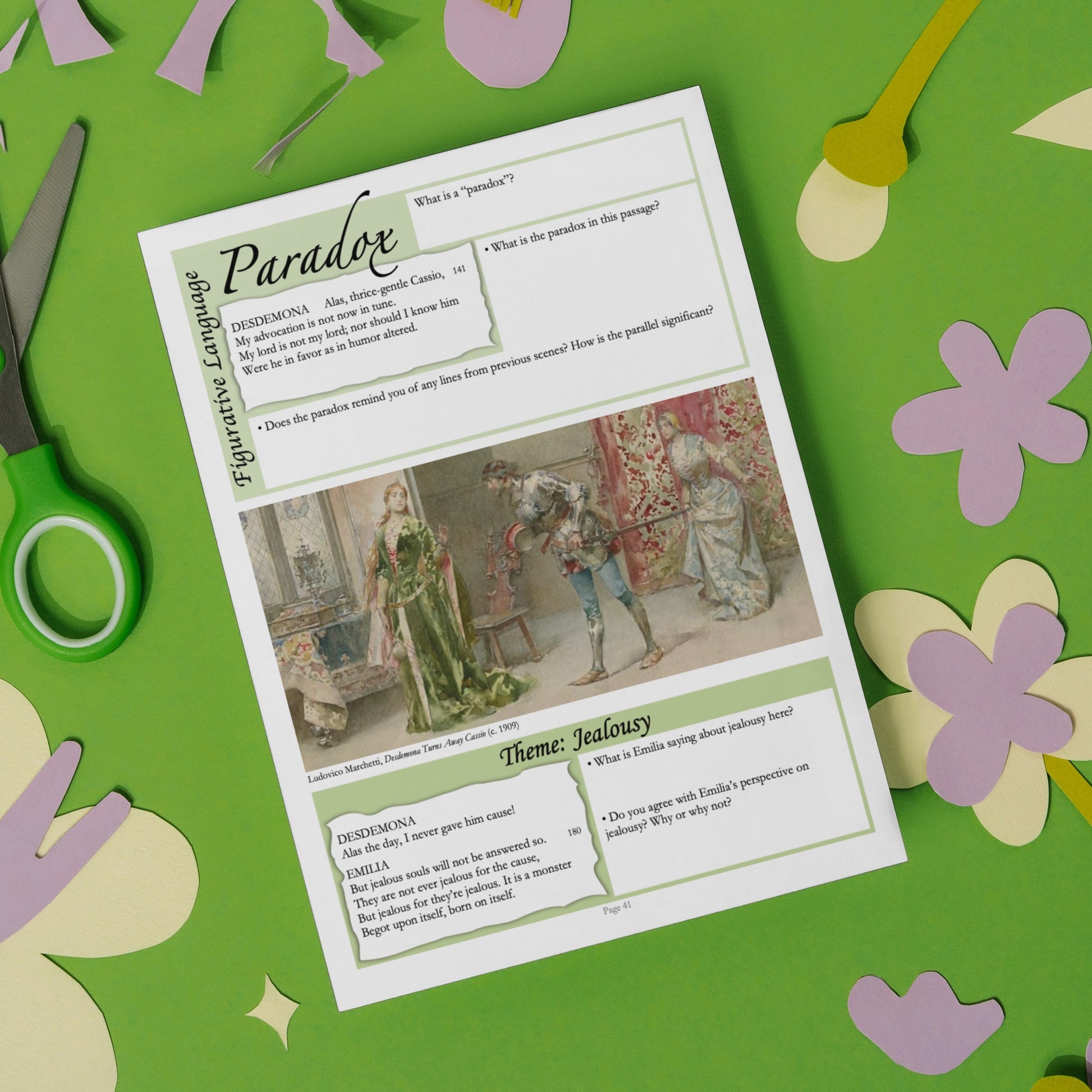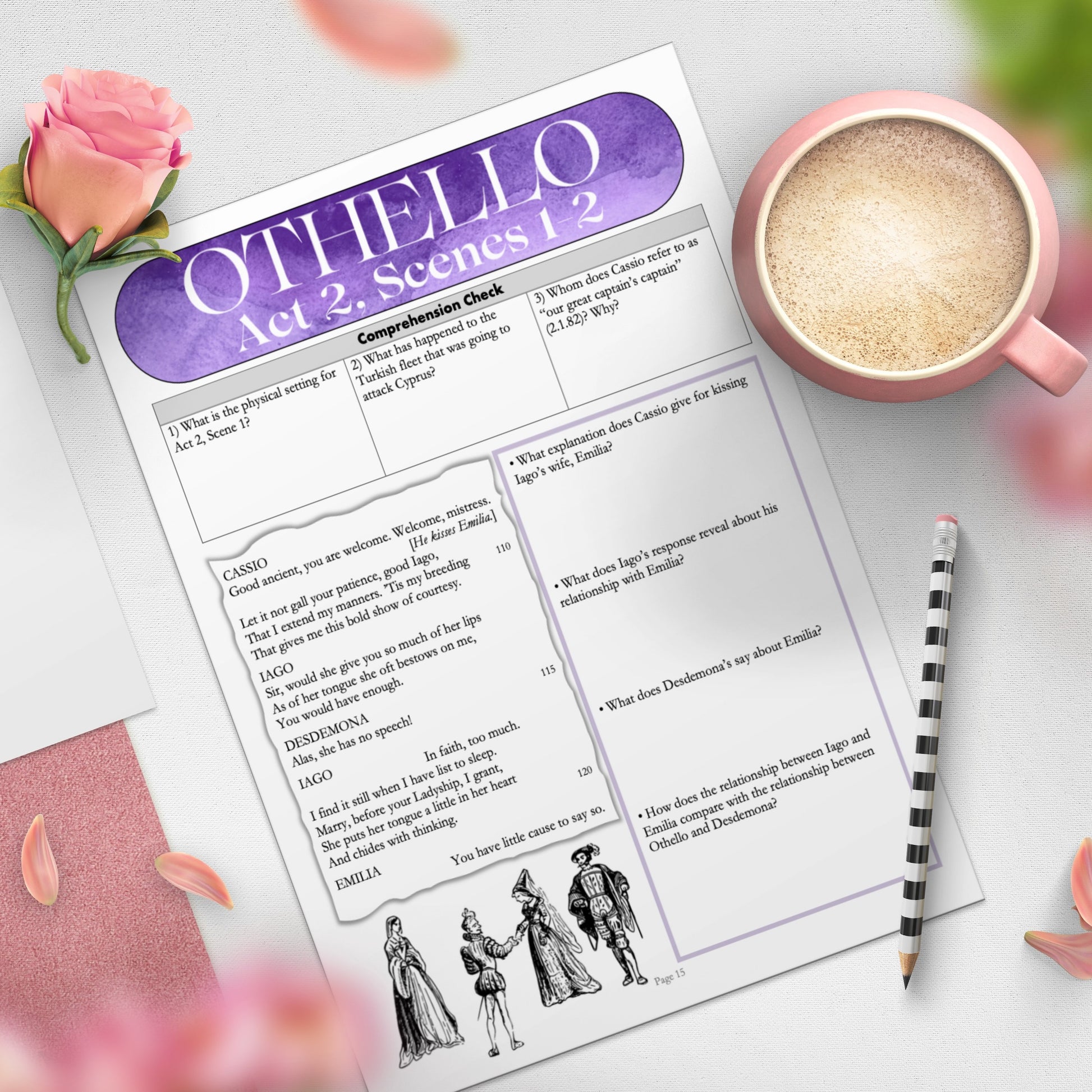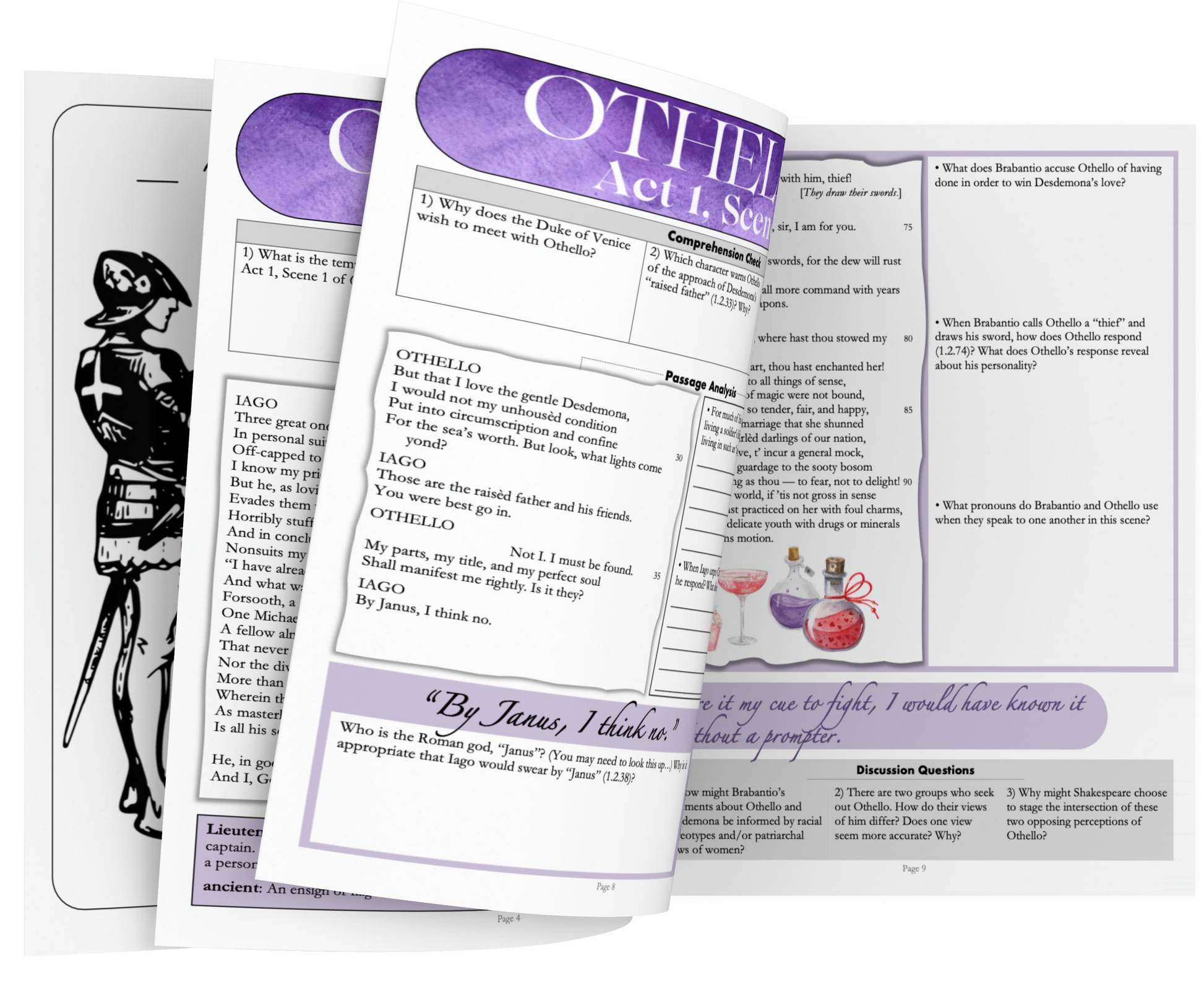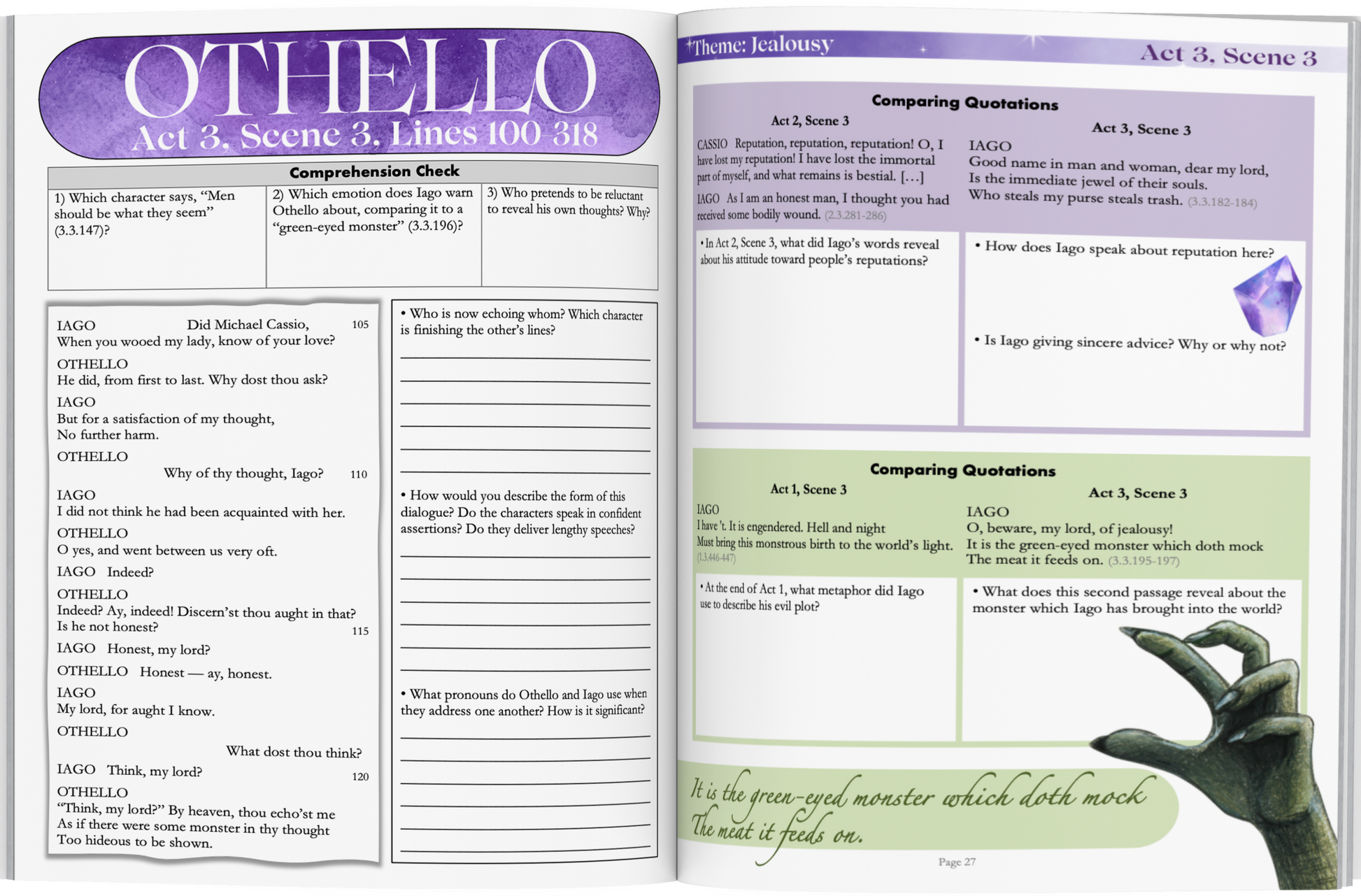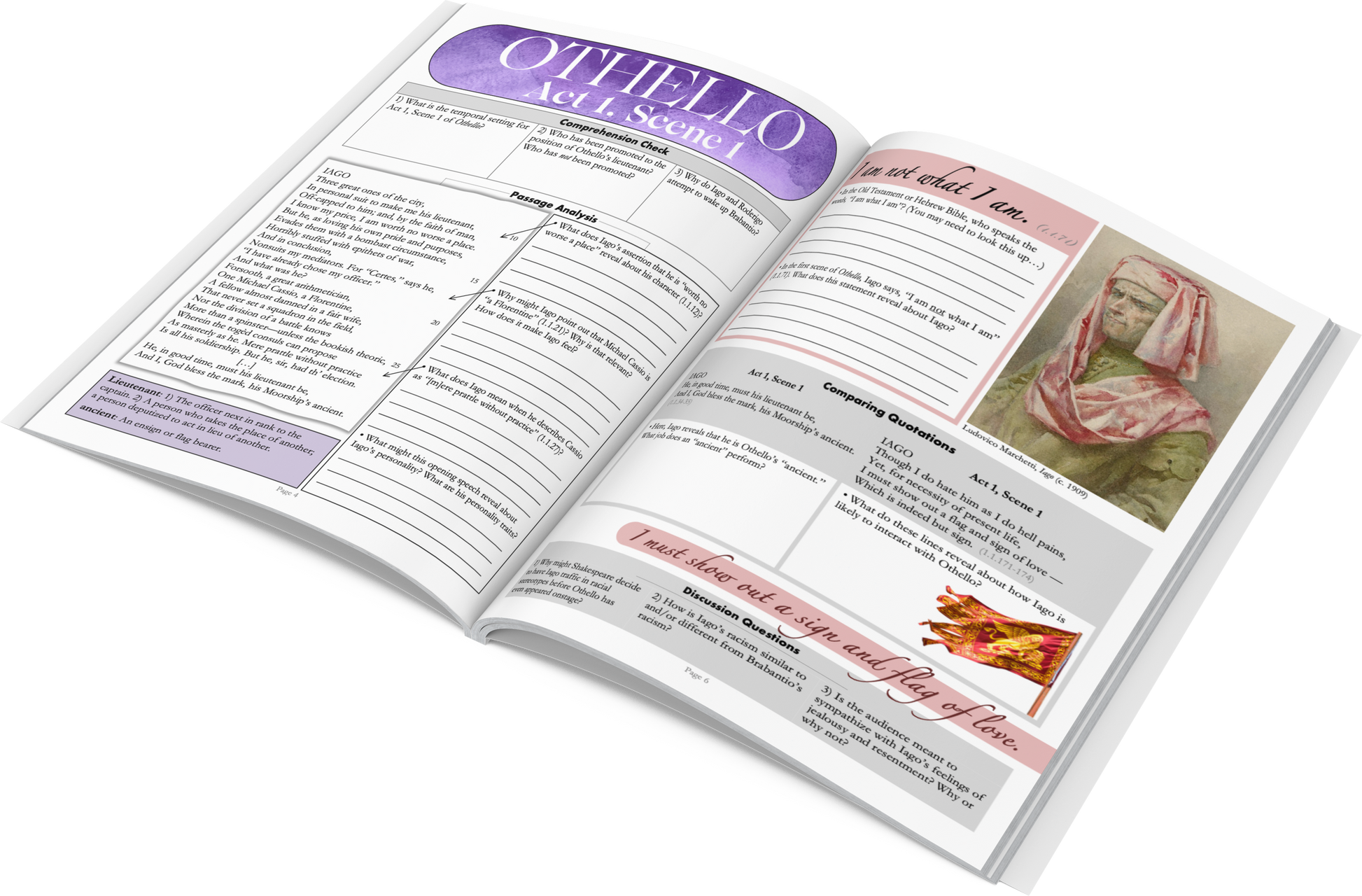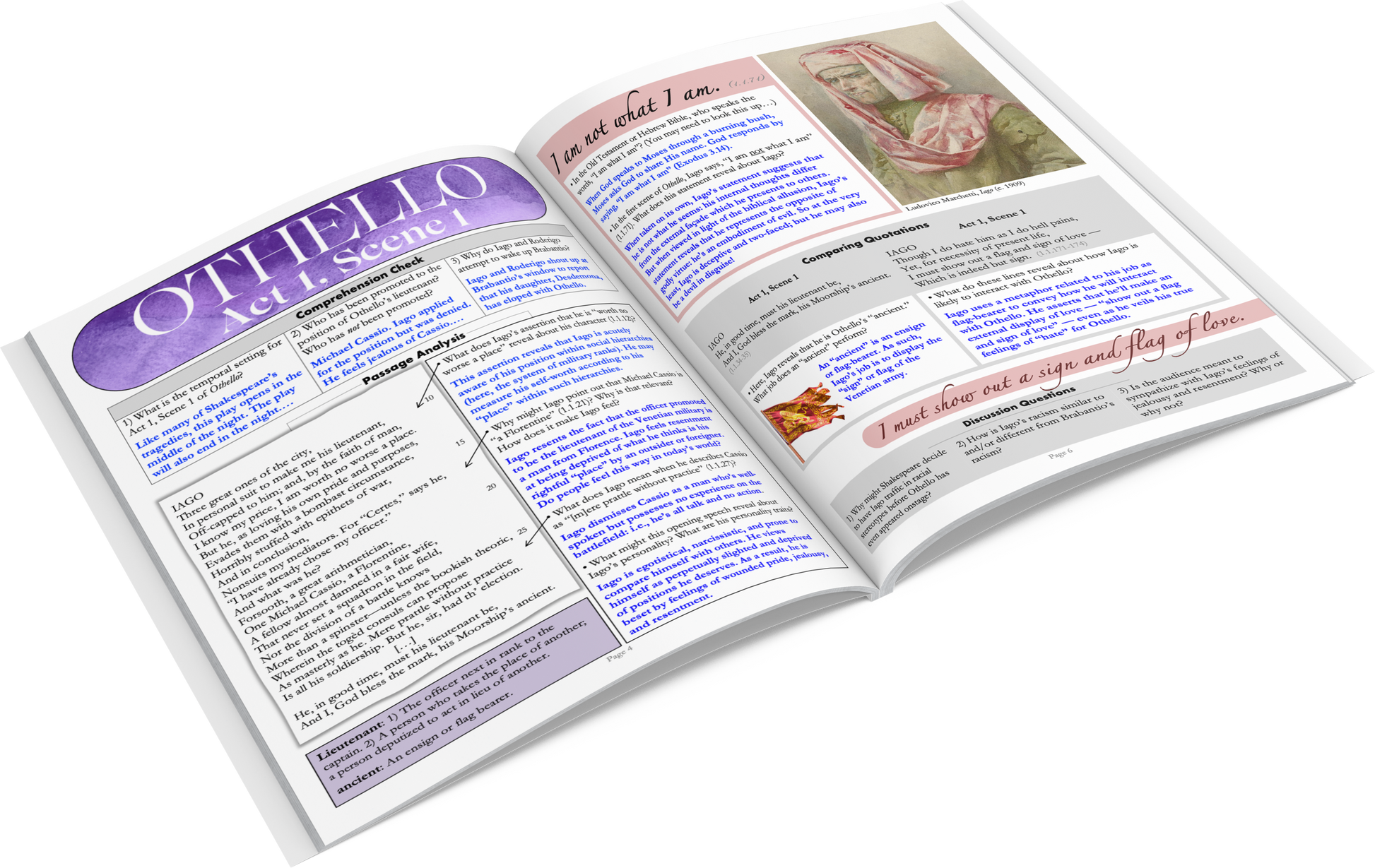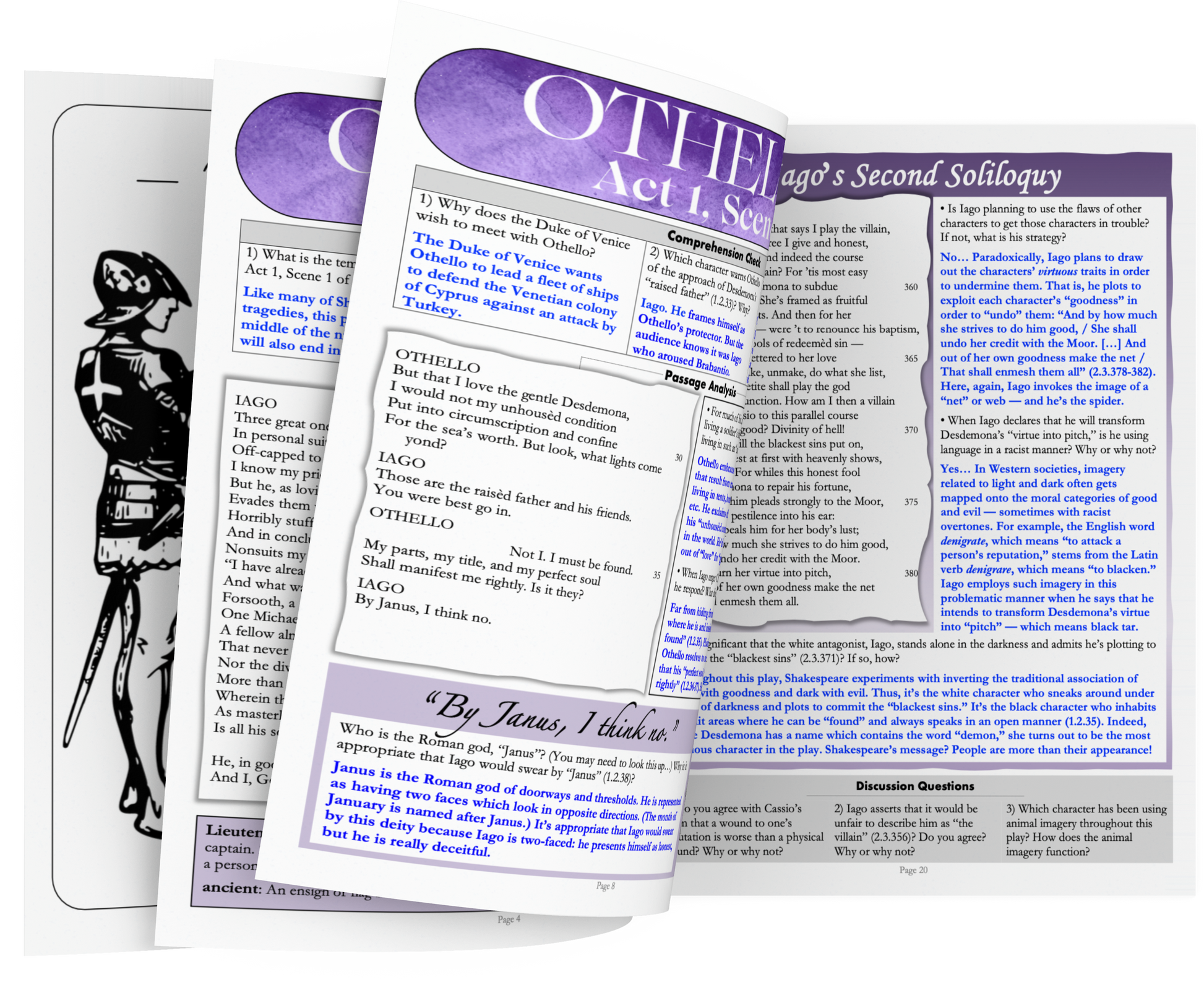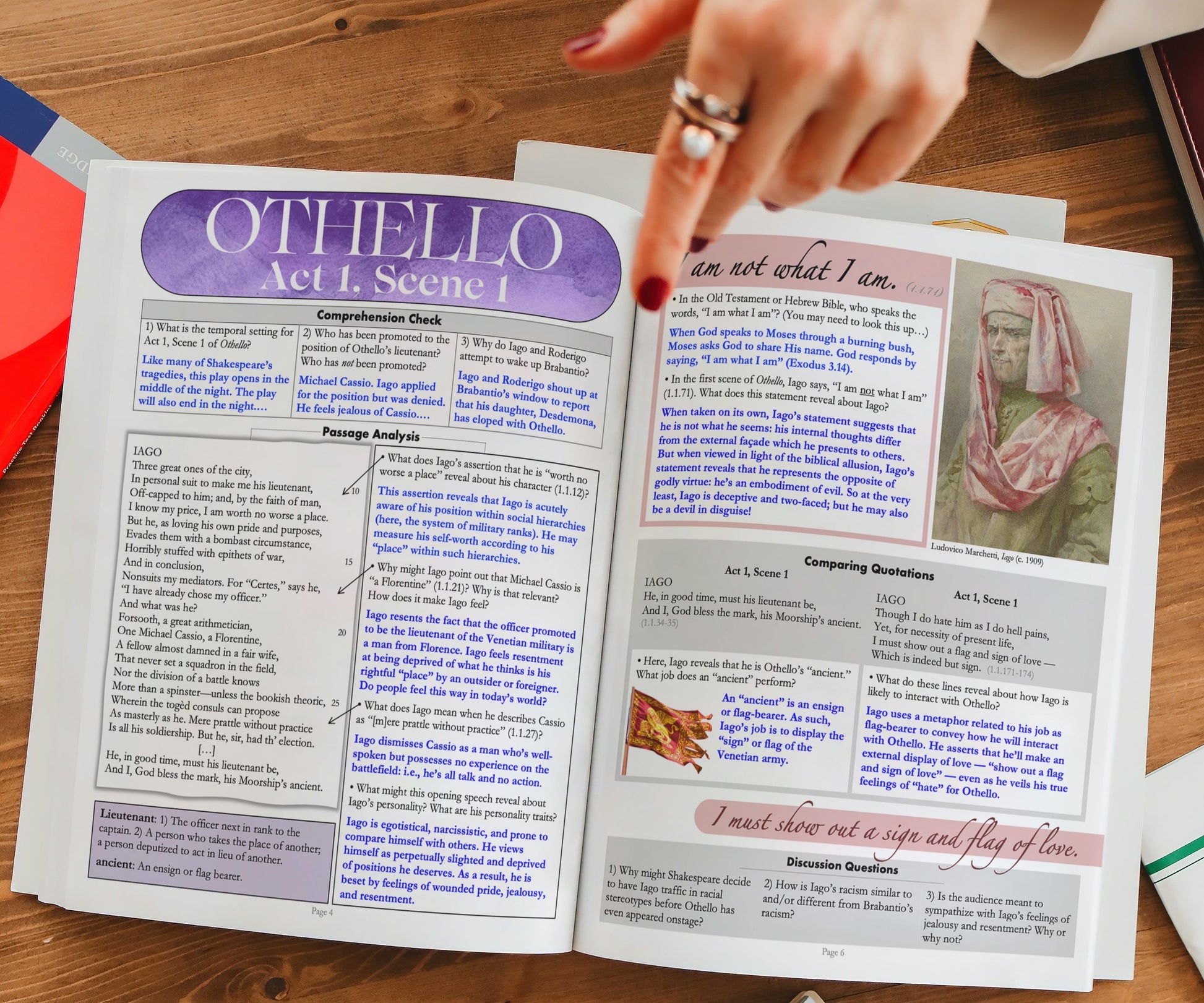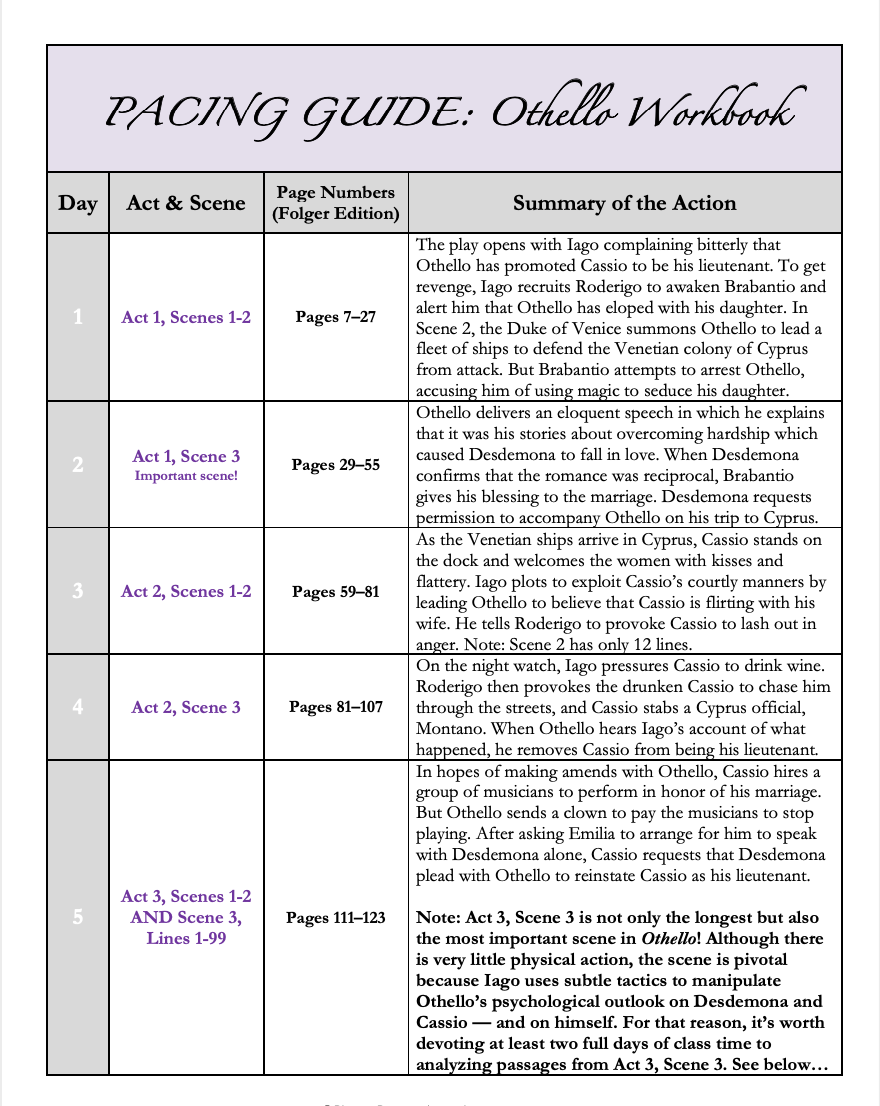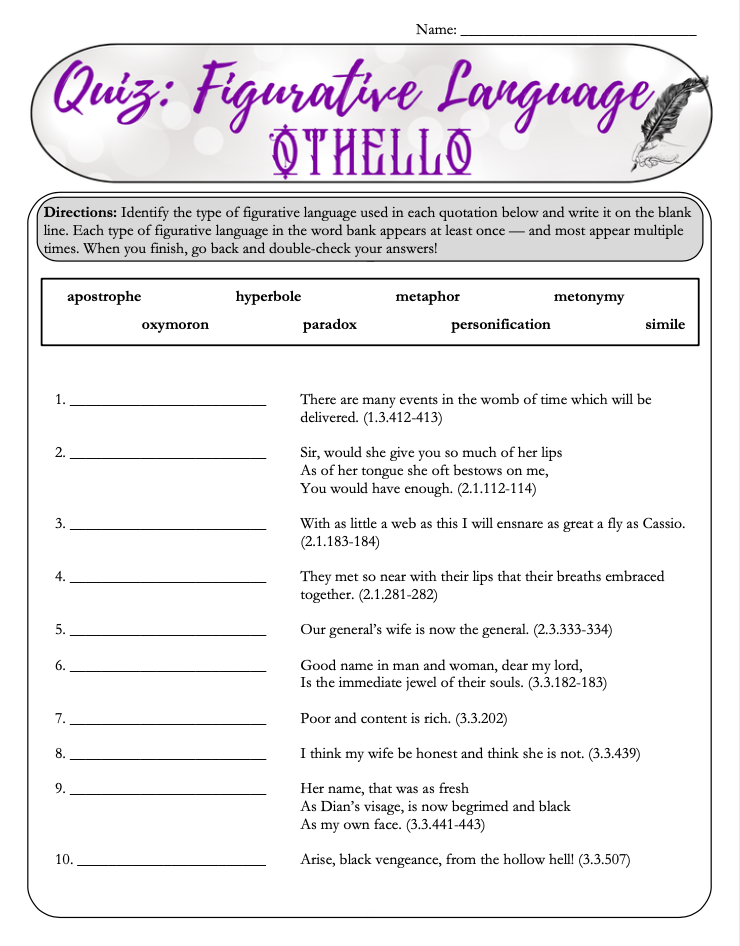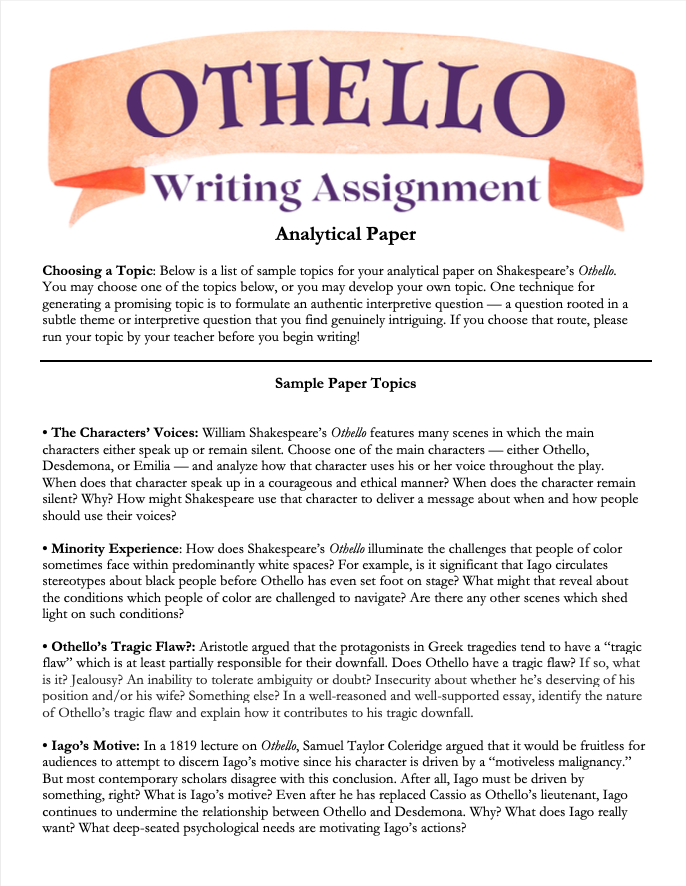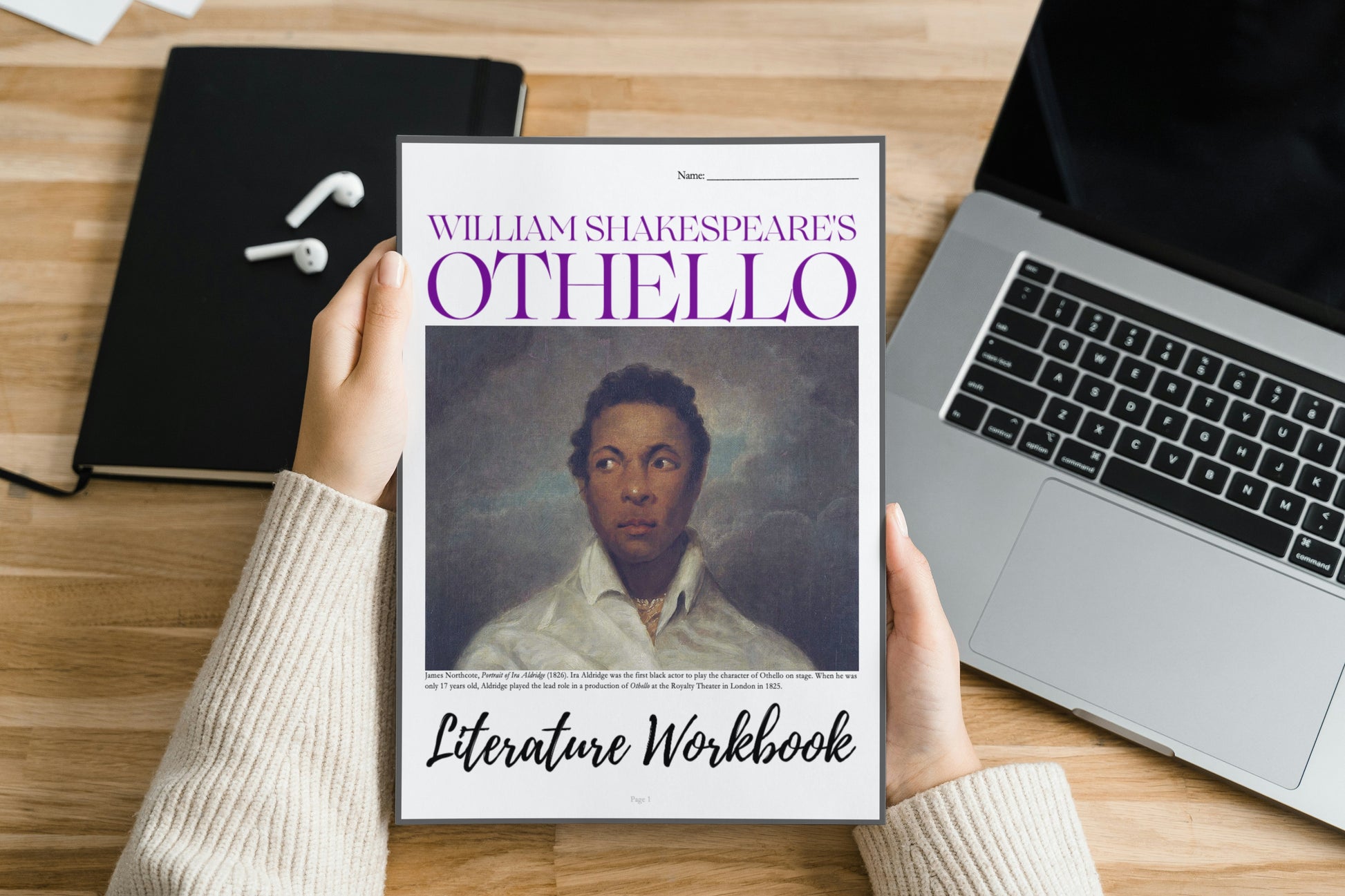Rigorous Resources
Othello by William Shakespeare | Complete Teaching Unit with Workbook & Answer Key
Othello by William Shakespeare | Complete Teaching Unit with Workbook & Answer Key
Couldn't load pickup availability
This 180-page unit has everything you’ll need to deliver profoundly engaging lessons on William Shakespeare’s Othello. Capture the attention of your students with colorful worksheets which are visually stimulating and intellectually rigorous. Inspire students to arrive at a whole new depth of insight while falling in love with Shakespeare’s Othello!
Here’s what you’ll find in this 180-page unit:
• Introduction to Shakespeare’s World: The 30-page introduction includes five handouts covering topics like Shakespeare’s biography, the language of Renaissance England, the construction of the Globe Theater, how to recognize iambic pentameter, and more. Every handout is followed by a comprehension check, practice exercise, or quiz. You could spend up to a week with the introductory handouts — or skip them altogether. Answer keys included. (30 pages)
• STUDENT WORKBOOKS on Othello: The 60-page workbook features highly engaging worksheets on every scene in Othello. Each worksheet is divided into sections which invite students to engage with the text in a variety of different ways:
- The Passage Analysis section invite students to analyze one or two key passages from each scene.
- The Evidence Hunt challenges students to answer an interpretive question by finding the best textual evidence to support their answer.
- The Comparing Quotations section invites students to make connections between quotations from different scenes in the play.
- The Discussion Question section features three higher-order questions designed to foster lively discussions and interpretive debates among students.
- The Quick Writes challenge students to compose short arguments that require the support of carefully selected textual evidence — leading to keen interpretive insights!
• Workbook Answer Key: The 60-page answer key to the workbook provides detailed answers to the passage analysis, evidence hunt, and comparing quotations sections. The answer key is informed by the best books and articles written by leading Shakespeare scholars: Marjorie Garber (Harvard), Stephen Greenblatt (Harvard), Coppélia Kahn (Brown), Eamon Grennan (Vassar), Dympna Callaghan (Syracuse), Susan Snyder (Swarthmore), Janet Adelman (Berkeley), Emma Smith (Oxford), Farah Karim-Cooper (Kings College London), Michael Neill (Auckland), and others. (60 pages)
• Figurative Language Quiz: The quiz challenges students to identify 8 types of figurative language — metaphor, simile, metonymy, paradox, oxymoron, personification, apostrophe, and hyperbole — used across 25 quotations from Othello. Also included is a glossary with definitions of the types of figurative language as well as examples of how they’re used in the early scenes of Shakespeare’s play — so you can begin reviewing the types of figurative language with students before they tackle the quiz. Answer key included. (5 pages)
• Analytical Writing Assignment: Challenge students to take their interpretations one step further by writing an analytical paper on Shakespeare’s Othello. Let students choose from one of 5 thought-provoking sample topics — or invite them to develop a topic of their own. Includes a writing schedule, outline template, and grading rubric. (8 pages)
This unit will come to you in two separate formats: Word docs and PDFs. Because the Word docs are fully editable, you'll be able to customize the materials to the skill levels of your students — year after year! If you don't have Microsoft Word, you'll still be able to access the complete unit in PDF format — which is easy to navigate and quick to print.
In case you'd prefer to purchase this product via the TPT website, here's a link that will take you to the product page on TPT.
Wishing you an amazing experience with teaching Shakespeare's Othello. If you have any questions along the way, please don't hesitate to get in touch via the email address below. I love hearing from fellow teachers who share a passion for great literature!
Happy teaching,
Adam Jernigan
adamjernigan@gmail.com
Share
